








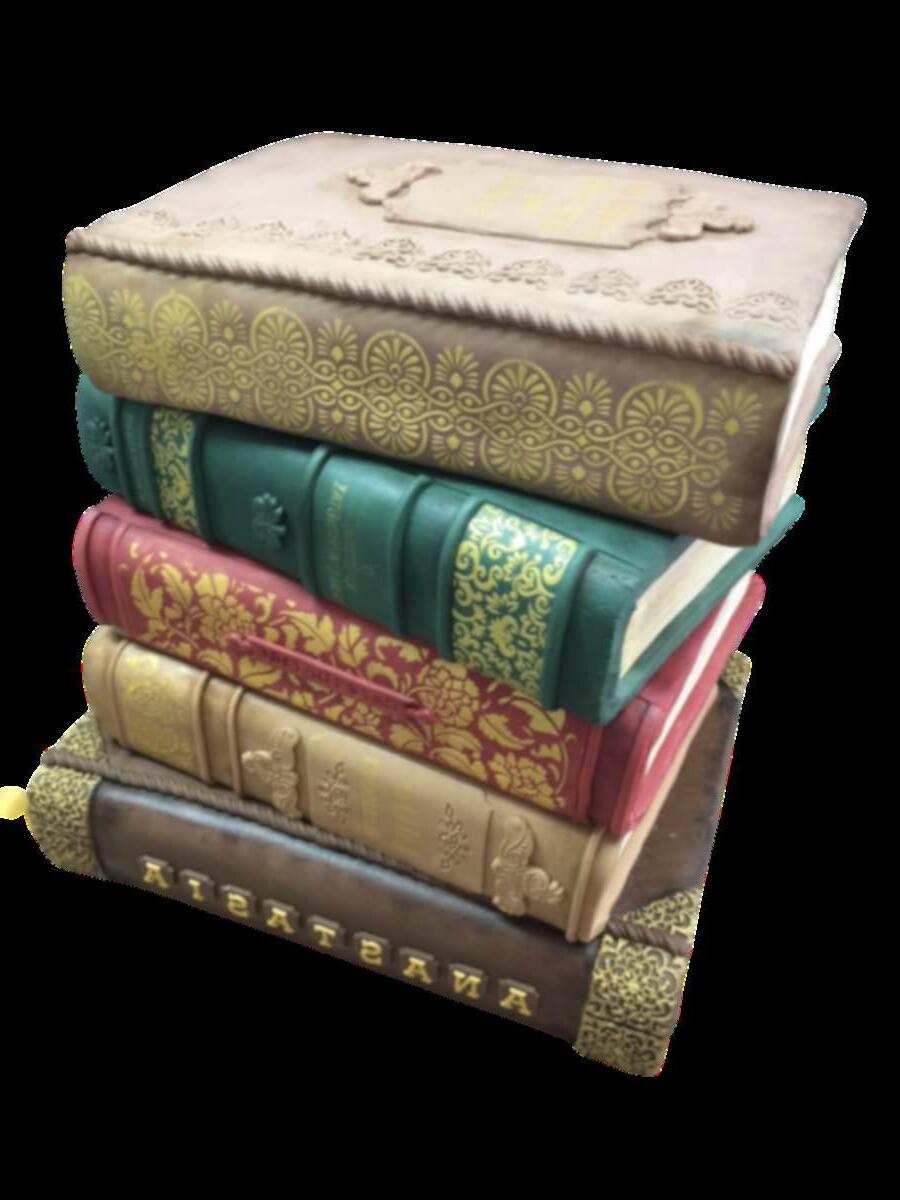







Page Turner is a magazine for Georgia’s readers and writers and any Georgiaphiles who enjoy learning about our state’s literary offerings, heritage, and events.


















Page Turner is a magazine for Georgia’s readers and writers and any Georgiaphiles who enjoy learning about our state’s literary offerings, heritage, and events.
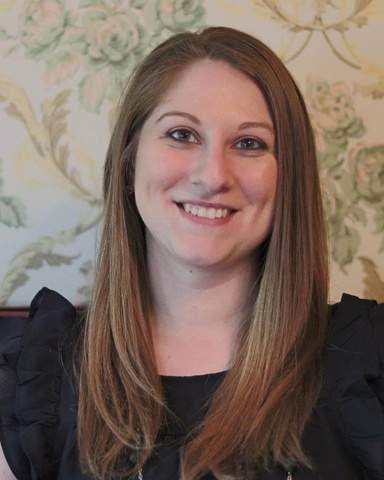
Each quarter, a team of experienced, award-winning writers will bring you suggested readings from the Reader’s Corner, tips and helpful advice from the Writer’s Corner and Writer’s Toolbox, and a feature on notable Georgia writers. For children, their educators and guardians, and anyone working on children’s books, we will feature four Children’s Books each quarter with suggested activities in Children’s Corner. Spotlight on Book Clubs will share book club stories from across our state, and maybe inspire you to start one! These articles will be staples of each issue, but others will pop up from time to time, so don’t miss out each quarter.
Brought to you by:
Georgia Writers Museum celebrates the state’s rich literary history, promotes its contemporary writers, educates readers and writers of all ages, and connects people to the literary arts of Georgia.
Atlanta Writers Club teaches the craft and business of writing, supports the local literary community, and encourages more reading by the public.
MelissaSwindell
Executive Director

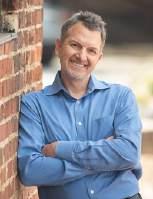
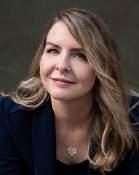
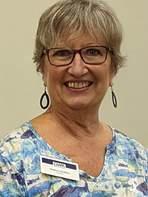
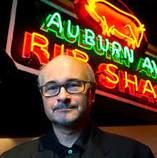

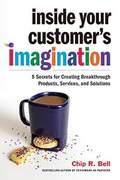
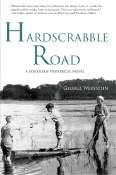

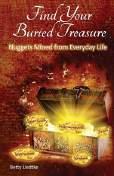
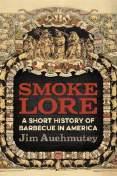

ChipBell
ManagingEditor,PageTurner
Author&KeynoteSpeaker
Chipisarenownedkeynotespeakerandauthorofseveralbestselling,awardwinningbooks.HehasappearedliveonCNBC,FoxBusiness,andCNN,andhis work has been featured in Fortune, Wall Street Journal, Forbes, USA Today, Entrepreneur,Inc.Magazine,andHarvardBusinessReview.
GeorgeWeinstein
Writer,PageTurner
ExecutiveDirector,AtlantaWritersClub
Georgeisanaward-winningauthor,two-timePresidentofAtlantaWritersClub, and since 2008, he has directed the twice-yearly Atlanta Writers Conference, bringing in acquisitions editors and literary agents to help AWC members understandthebusinessofwritingandachievetheirdreamsofpublication.
KimConrey
Writer,PageTurner
Kim is the author of the sci-fi romance series, Ares Ascending, and the urban fantasy, Nicholas Eternal She was the 2023 Georgia Author of the Year for Romance.
BettyLiedtke
WriterandCopyEditor,PageTurner
FormerColumnist,Chanhassen(MN)Villager
Award-winningcolumnistBettyLiedtkecurrentlyservesasSecretaryofGeorgia WritersMuseum,andisa20-yearveteranofToastmastersInternationalandan activememberofPathwaystoHope—AfricaandtheGreensboroWritersGuild.
JimAuchmutey
Writer,PageTurner
FormerReporter,AtlantaJournal-Constitution
Jim spent almost 30 years as a writer and editor for the AJC, specializing in storiesabouttheSouthanditshistoryandculture.HewastwicenamedtheCox Newspapers chain’s Writer of the Year, and was honored by the Robert F. KennedyJournalismAwardsandtheAssociatedPress.
RogerJohns
Writer,PageTurner
Rogerisaformercorporatelawyer,retiredcollegeprofessor,theauthorofthe Wallace Hartman Mysteries, and the 2018 Georgia Author of the Year for Mystery/Detective.
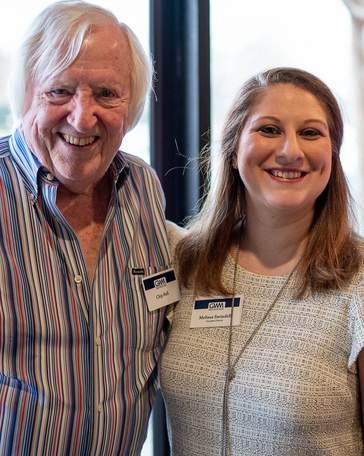
Chip and I invite you to:
Page Turner is a magazine for Georgia’s readers and writers and any Georgiaphiles who enjoy learning about our state’s literary offerings, heritage, and events.
Share your feedback. Do you love Page Turner? Let us know!
Tell us what you want to see in upcoming issues.
Sponsor a low-cost ad for your book talk, writing workshop, festival, or bookstore.
Write with us! Submit an application to join our all-volunteer writing team.
Spotlight a Book Club. Are you in a book club, or do you know one that should be featured? Send it in!
Contact us online at:
www.georgiawritersmuseum.org/ page-turner



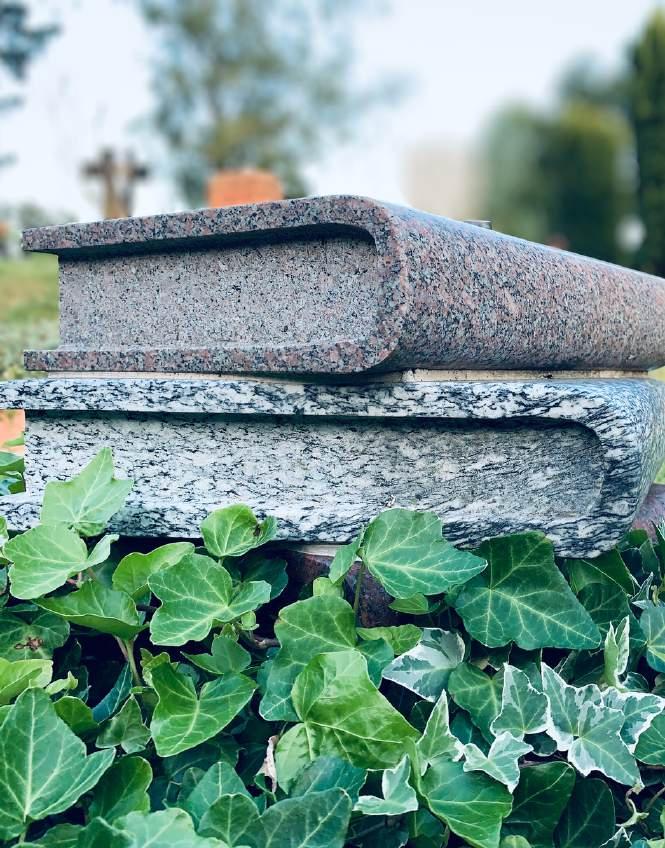



Writer’s Corner
Breaking Up is Hard To Do
Writer’s Toolbox A Cart Full of Stories “Why I Write” by Philip Lee Williams
If You Only Have an Hour The Perfect Pitch
Business of Authoring Sam SoRelle’s Rules for Author-Designed Websites
Eat Your Words Celebrating Leftovers
Words
Wealth
Screenwriter?
Reader’s Corner

Create a “Cuts” (or “Leftovers”) folder every time you start a new writing project Use it to store the characters, phrases, sentences, or scenes that you love, but that become unnecessary or inappropriate at some point in your writing.

Skim through these leftovers once in a while especially if you develop writers block at any point to see if there is somewhere else they might be useful
SWITCH IT UP

When you finish your current writing project, or need to take a break from it, select one of the leftovers that you find particularly enticing, and use it as a starting point for a new story or poem. Freewriting and letting your mind wander may bring this character, setting, or dialogue into an intriguing new situation, and serve as the inspiration for your next literary masterpiece.

byBettyLiedtke
“Don’t be afraid to kill your darlings.” This common advice to writers is not encouraging homicide. Instead, it’s reminding us that when editing our work, we need to be ruthless in eliminating characters, phrases, or even entire chapters that we love, but that no longer support our narrative And this can be painful!
Once, after working on a manuscript for the better part of a year, I realized that one of my favorite main characters was extraneous. As I deleted her from the story, distributing her relevant words and actions to other characters, I experienced a sense of loss and guilt that also felt surreal
Cutting her from the story wasn’t the same as killing off a character; it was as though all of a sudden, someone with whom I had been interacting for a year—poof!—had never even existed.
Sometimes, our muse is in a particularly generous mood, and we write a sentence so brilliant and beautiful that it should have its own star on the Hollywood Walk of Fame. But as we edit and rewrite, our story veers off in another direction, and our brilliant sentence no longer fits. We know it has to go, but we hate topartwithit.
Years ago, I discovered a way to make the process less painful. Now, whenever I start a new writing project, I create a folder labeled “Cuts,” where I can send my beloved but nolonger-appropriate scenes and sentences, instead of simply deleting them from my document.
Although it rarely happens, these tempting tidbits occasionally make their way back into my manuscript. Or they wait patiently for a time when they might be precisely what I need in another writing project. Mostly, though, they simply give me the peace of mind of knowing I don’t have to (completely) kill my darlings after all.★
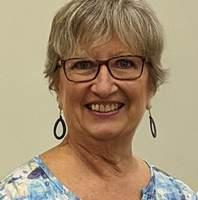
Betty Liedtke is a writer, proofreader, copy editor, and the author of Find Your Buried Treasure Nuggets Mined from Everyday Life.
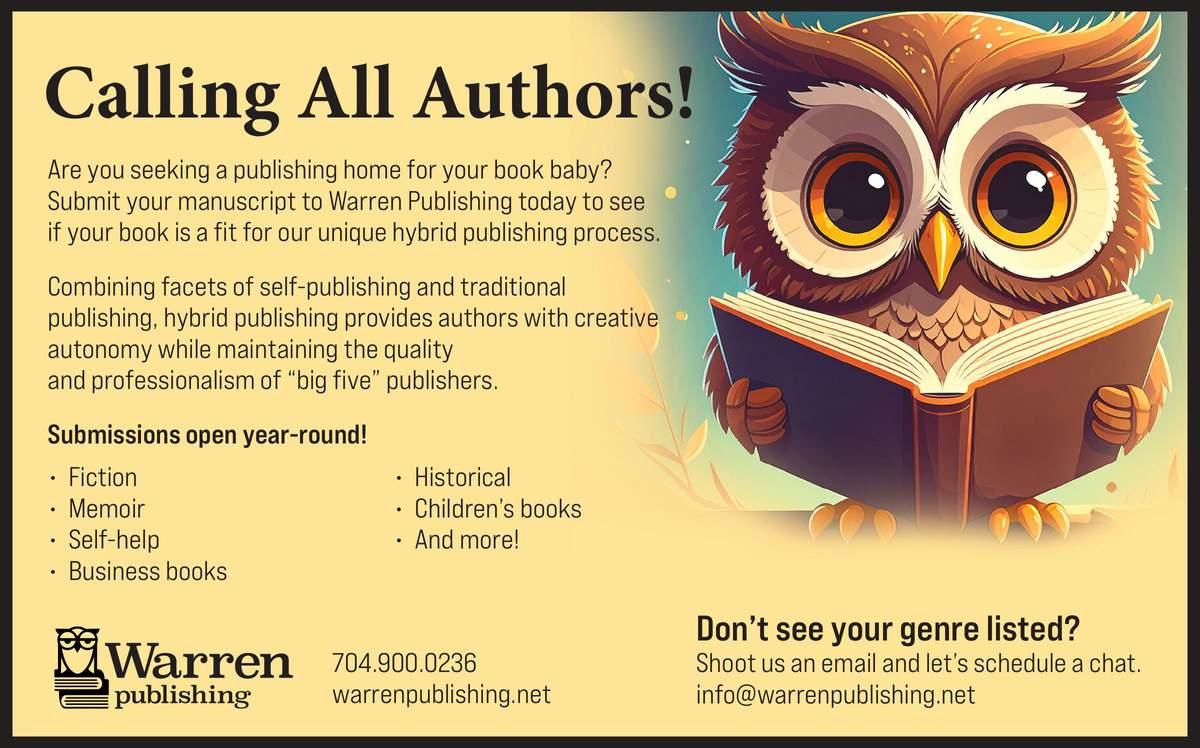




Thanks to the national Authors in Grocery Stores Program, I’m now able to hand-sell my books in Kroger supermarkets across Georgia Nothing can take the place of talking about reading favorite genres with faithful bookstore patrons who are there because they love books and enjoy meeting the people who write them—but arranging signings in bookstores can be difficult, and they sometimes struggle to attract a lot of foot traffic, whereas a supermarket in a busy part of town always has people walking in. Having done numerous signings in both venues, I’ve observed some interesting differences between grocery store shoppers and those who frequent the bookstores
First, the Kroger customers I manage to talk to are almost universally surprised and often delighted to find an author at a table between the produce and florist sections doing a signing. Bookstore customers, by contrast, are accustomed to seeing writers hawking their wares Some bookstores host one or more signings every week; we’re a common sight in those outlets.
by GeorgeWeinstein
The flip side is that the vast majority of grocery store customers reflect most American consumers: either they don’t like reading or don’t have the time. The irony of doing signings in supermarkets is that, while I’ll encounter 100+ more potential buyers of my work in a Kroger than in a bookstore, the rejection rate is far higher as well Even a veteran author like me with the thick skin to prove it can get discouraged. This makes encountering a grocery shopper who also craves books an extra special event. They seem to be even more excited about their purchase of a signed copy than those in bookstores
Another difference is pace. The average supermarket shopper is on a mission, whereas the typical bookstore customer is browsing or maybe even just killing time “Shopping” is done at two very different speeds at these two kinds of retailers. The Kroger customers’ hurried pace makes the rejection rate even higher: even if they like reading, they’ve told me, they don’t have time to listen to my spiel.
Doing book signings in any kind of retail environment from bookstores and supermarkets to craft fairs and festivals is not for the faint-hearted. The chance to talk to potential readers about what I’ve written is a privilege anywhere, but while the sales I get at the grocery store are fewer and further between than at bookstores,they’reharderwonandcanbe thatmuchmoresatisfying.
If you’re an author and interested in the Authors in Grocery Stores Program, click here, and if you sign up, please put AtlantaWC on the referral line so the AtlantaWritersClubwillgetcredit ★

George Weinstein is the twiceformer President and current Executive Director of the historic Atlanta Writers Club (AWC), which was founded in 1914
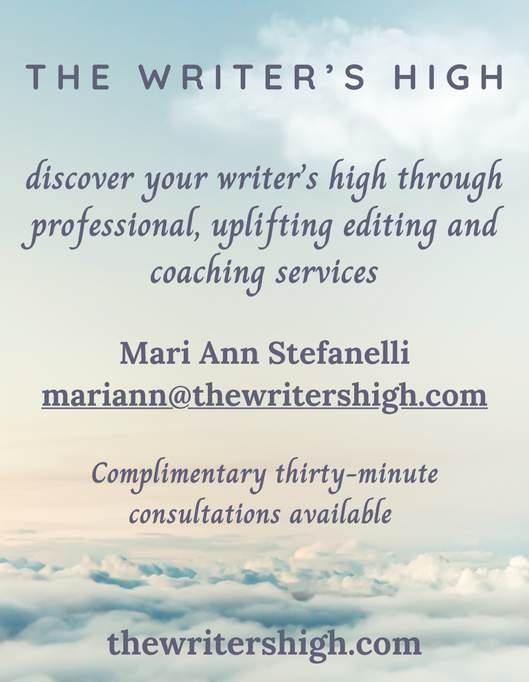

When I was in my late teens, I wanted to see if I could breathe life into people and places on the page. I had read poetry since I was a boy, but fiction began whispering to me only whenIwenttocollege.
People seem fascinated about the reasons writers write. An online site called The Literary Hub, certainly knowing its readership, published in 2021 a very lengthy article called “Here’s 33 Writers on Why They Write.” All of which makes me a bit abashed because, in truth, I have rarely considered why I write. To me, it’s like thinking about a garage when a 1963 Ferrari 250GTOisparkedinside.
Perhaps creativity is an unstoppable spark in some of us. Maybe its necessity lies in genetics. I planned from ages 14-18 to be a composer of contemporary classical music when I grew up. But somehow fiction dragged me into its lovely cadences and characters in my early 20s, and I didn’t get around to composing symphonies and concertiuntilIwasinmy50s.
by
PhilipLeeWilliams
Why? I simply don’t know. Perhaps I read a book, loved it, and wanted to see if I could makeanovel,too.
Like most young writers, my first few (unpublished) novels were failures. But I read, read more, and wrote every day before I went to work. I even wrote on Christmas and Thanksgiving. I was obsessed with something Hemingway wrote in A Movable Feast to urge himself onward as a young writer: “All you have to do is write one true sentence. Write the truest sentence you know.” Maybe that’s just an old chestnut now, but to me in the early ’70s, it was electrifying.
So, when I was about 30, I sat down to write a story about everything I loved. The book that came out was my first published novel, The Heart of a Distant Forest, which W.W. Norton bought in 1983 and published the nextyear.
So why do I write? I suppose there is an element of addiction involved. Writing gives me happiness, even if I fail. So, I start again, hoping the spark ignites in an unexpected way.



In the LitHub article, Don DeLillo was quoted as saying, “I write to find out how much I know. The act of writing for me is a concentrated form of thought.” Often, I find out how much I don’t know, evenwhenIworkveryhard.
But when I write, I am on autopilot. It is who I am, not what I am doing. I don’t recall ever asking myself, “Why are you doing this?” Perhaps ambition had something to do with it. Or maybe studying Bach fugues as a teenager showed me how to craft a plot with many moving parts. The urge to tell a story may go back to the first years of humankind. Some of us are predisposed to defend the clan, while others self-select to tell the storiesofourpeople.
Not all of my characters come alive. But when they do, I feel a joy in the blood. And that’s reason enoughtowrite.Morethanenough.★
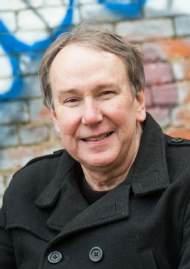
Philip Lee Williams is the author of 21 published volumes of fiction, poetry, and essays. He grew up in Madison, Georgia, and graduated from the University of Georgia While writing books, he was also a journalist, and then worked at UGA for 27 years. He is
a winner of the Townsend Prize for Fiction, the Governor’s Award in the Humanities, and is an honoree in the Georgia Writers Hall of Fame. He was also named Georgia Author of the Year four times in three different categories. In addition, Williams has been named a winner of the Georgia Writers Association Lifetime Achievement Award.
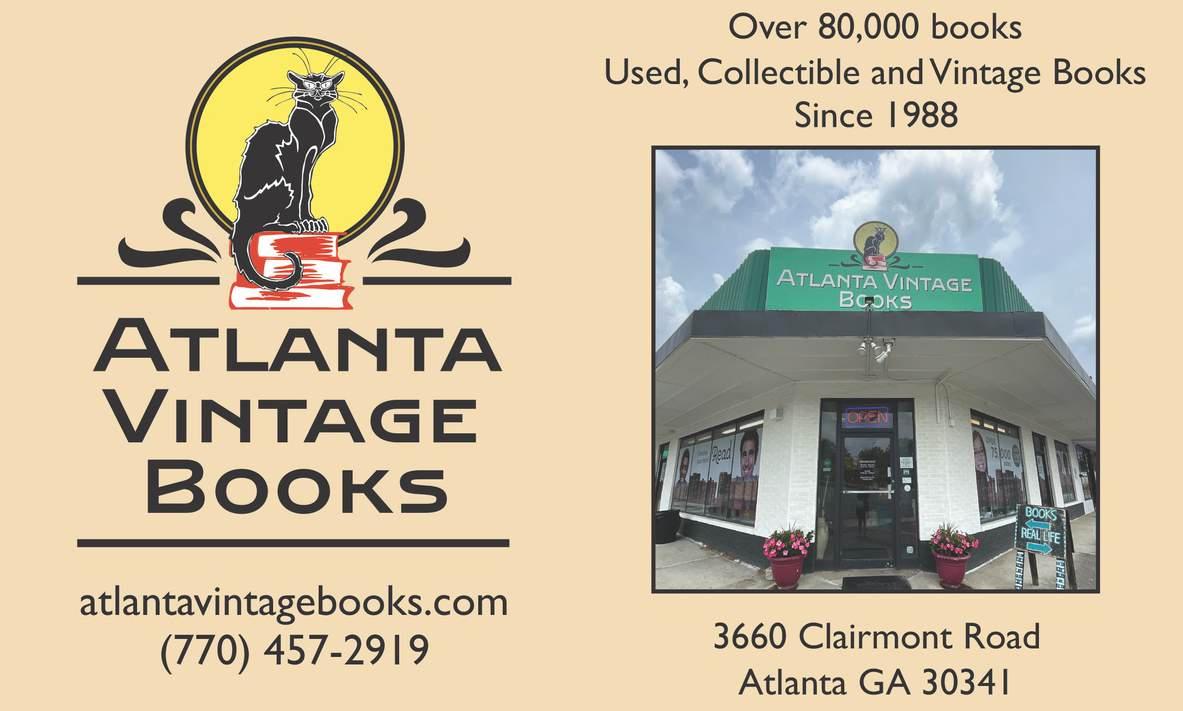

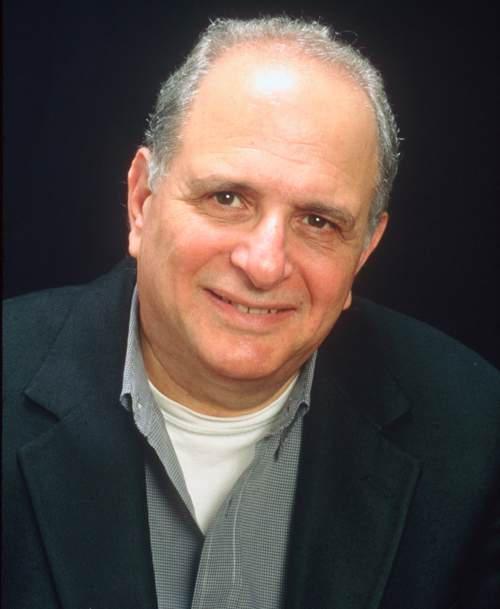

Alfred Uhry is an Atlanta-born playwright, lyricist, and screenwriter, best known for his play, Driving Miss Daisy, which premiered in New York in 1987 and was later adapted into a film. Uhry has received a Pulitzer Prize, an Academy Award, and several Tony Awards for his work the only playwright to win all three awards. He attended Druid Hills High School, graduated from Brown University with a degree in English and Drama, and taught English at Calhoun School in New York City He was inducted into the Georgia Writers Hall of Fame in 2014
Oct 1 Daniel Boorstin (1914) The Americans
Oct 4 Roy Blount, Jr. (1941) Save Room for Pie
Oct 5 Vereen Bell (1911) Swamp Water
Nov 4 Furman Bisher (1918) Miracle in Atlanta
Nov 13 Frank Manley (1930) The Cockfighter
Nov 21 James Kilgo (1941) Daughter of My People
Dec 11 Valerie Boyd (1963) Wrapped in Rainbows
Dec 23 Calder Willingham (1922) Eternal Fire
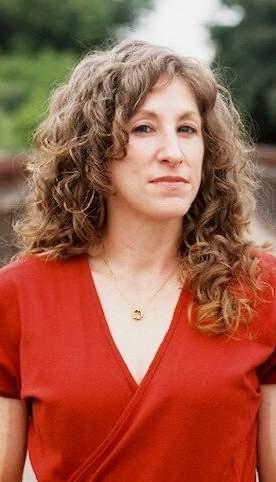
Every evening, in order to keep my cynicism at bay, I jot down three simple things that I’m grateful for about that day. If you’re anything like me–struggling and doubting your way through a manuscript–I think it could be useful to apply the same exercise to writing Can you find three things to admire in that day’s work? At worst, you might simply be grateful that you’ve found the time to get any words on the page, imperfect as they may be. It’s so simple, but I’ve found that it really does provide the fuel for productiv

Xhenet Aliu’s novel, Brass, was awarded the Townsend Prize in 2020, the 2018 Georgia Author of the Year First Novel Prize, and was long-listed for the 2018 Center for Fiction First Novel Prize Her newest book is Everybody Says It’s Everything Her previous book is Domesticated Wild Things and Other Stories, which won the Prairie Schooner Book Prize in Fiction She teaches Creative Writing at the University of North Carolina Greensboro

Uncle Remus Museum
Uncle Remus Museum
214 Oak St.
214 Oak St.
Eatonton, GA 31024
Eatonton, GA 31024
Monday - Saturday 10am - 5pm
Monday - Saturday 10am - 5pm
Sunday 1pm - 4pm (706) 485-6856
Sunday 1pm - 4pm (706) 485-6856
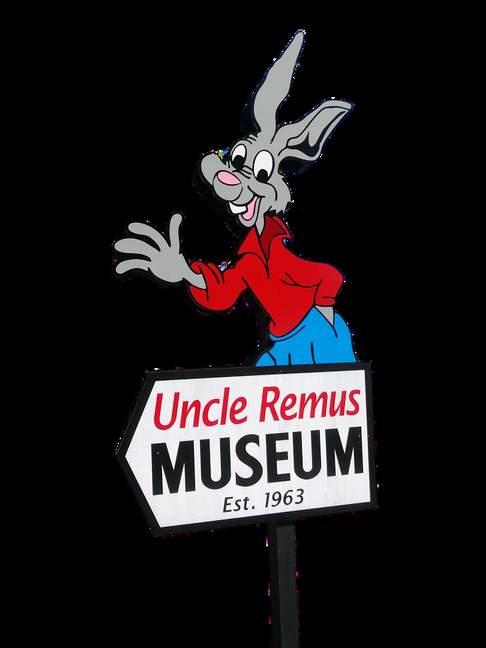
byKimConrey&RogerJohns byKimConrey&RogerJohns
In an earlier column, we offered some tips on how to identify bookstores to approach for an author event. Following up on that, we have some market-tested tips on how to get your foot in the bookstore door
Just as every good softball pitcher needs an arsenal of pitches to meet various situations, published authors do, as well: a pitch to attract an agent or publisher, a pitch to interest buyers in reading your book, and a pitch to convince bookstores to have you in their store for an event.
Unlike convincing readers your book is something they’ll want to read, however, you must convince bookstores your book is something they can sell So, instead of focusing on the plot or your new self-help technique, focus on your book’s sell-worthy attributes, and have the technical data stores ask for at hand: Publisher, ISBN, Genre, Release Date, Awards or Nominations, Industry Reviews, Author Blurbs, and Local Tie-ins This information, presented concisely, tells the store you’re a pro and helps them know if you’re a good fit.
Perfecting your pitch may require some trial and error, so be willing to practice Try it out on trusted individuals before calling the stores Something like the following can serve well to open the conversation:
“My name is , and I am promoting my new mystery/memoir/space opera/romance (whatever it may be) , (title) , from (publisher) I’ll be in your area during (time frame) , and I’d love to spend some time in the store, to meet you and your customers, and sell some books.”
Just remember to make it your own And polish it until it sounds natural and compelling

Roger Johns is a former corporate lawyer, retired college professor, the author of the Wallace Hartman Mysteries, and the 2018 Georgia Author of the Year for Mystery / Detective



Kim Conrey is the author of the sci-fi romance series Ares Ascending and the urban fantasy, Nicholas Eternal. She was the 2023 Georgia Author of the Year for Romance.
Kim is the author of the sci-fi romance series Ares Ascending and the urban fantasy, Nicholas Eternal She was the 2023 Georgia Author of the Year for Romance.
Authors write books for many reasons. If you plan to actually sell your books, you’ll need a website, your portal to sales, publicity, and reader connections. Some websites are better than others I invite you to check out www samanthasorelle com for inspiration and instruction. Here is a tour of the principles she follows.
Her seven tabs across the top of her home page give you simple categories to pursue like Fun Stuff, Free Reads, plus the ones you’d expect. Smack in the middle of the home page is an intriguing, antique photo with her name boldly paraded across the middle You’ll find her newsletter with an easy invitation to subscribe, a key networking device. At the bottom is a description of her latest release with a captivating description that leaves you wanting to know more. Click on the “Read More” button, and you are given a dozen ways to download the e-book Access is crucial

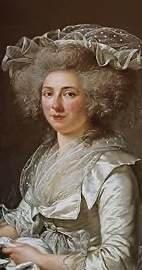
Samantha SoRelle is the queen of successful self-publishing. Since self-publishing her first novel in 2020, she has become a nationally known author in the LGBTQ+ historical romantic suspense genre She was recently nominated for multiple Indie Ink Awards, as well as the Goodreads M/M Romance Members’ Choice Award for Best Historical Novel Her nine selfpublished novels and many short stories have proved incredibly popular, building a larger reader base with each new book
by ChipBell
The Free Reads tab (a must since it provides readers with appetizers) leads you to four free short stories and eight free samples from her books. The Purchase tab offers multiple ways to buy her books, including a way to get signedcopies.Howoriginal!
The Social Media tab includes all the platforms she regularly feeds, a way to send her a personal note, and...wait for it…her email address! She doesn't require visitors to fill out a bureaucratic form just to connect with her. Yeah, Sam!
The About the Author tab includes her entertaining bio. With lines like, “…she finally settled in Georgia, where the humidity does all sorts of things to her hair,” you'll want to get to know her better. Her Fun Stuff tab is not only entertaining, it features charming photos of classy dollhouse rooms, complete with “Can you spot the clues frommybook”typepuzzles.
If you want your website to be a billboard on a remote country road, hire a cheap webmaster. But if you want a memorable site with stickiness and return visitors, follow the Sam SoRelle rulesofwebsitecreation.
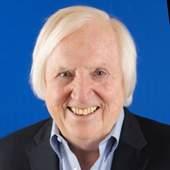
Chip R Bell is an awardwinning, best-selling author and serves on the board of Georgia Writers Museum




OCT.24,25,30
NOV.1
TWOTOURS



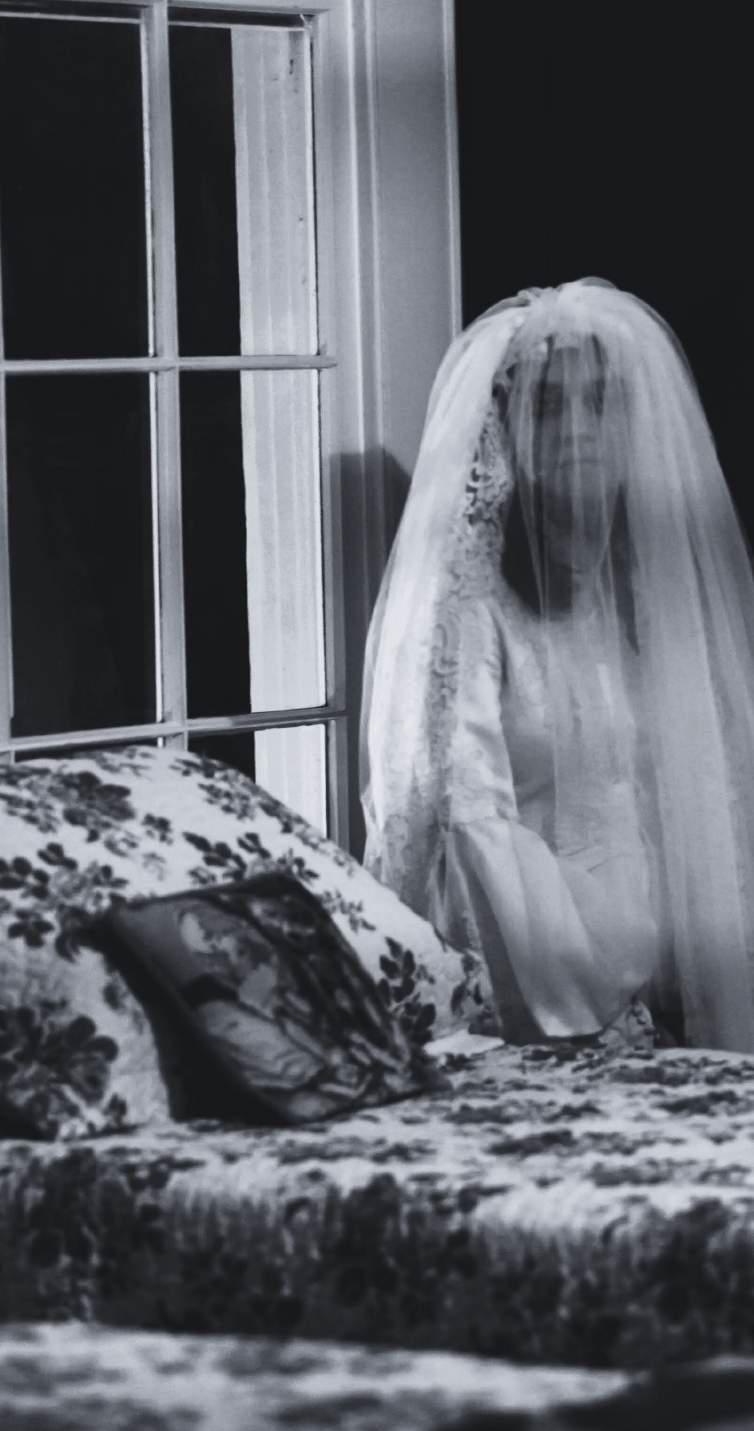



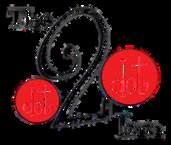


Being an author can be tough By the time some authors are finally famous, they are already dead. Emily Dickinson published ten poems during her lifetime But another 1,800 poems were published a few years after her death. Herman Melville was forgotten for the last thirty years of his life and, adding insult to injury, his obituary misspelled his littleknown book, Mobie Dick Nobel Prize-winning Ernest Hemingway had three of his novels, including The Garden of Eden, plus four short story collections and three nonfiction works, published after he took his own life
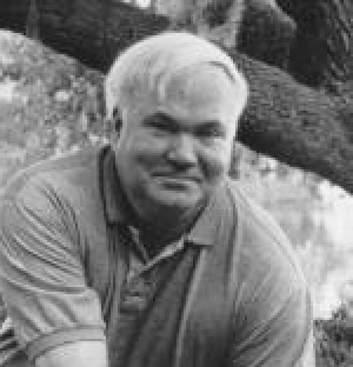
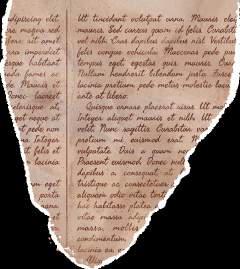
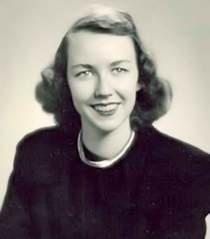

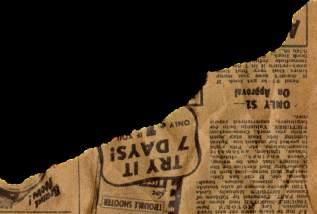
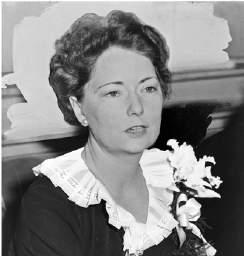
Georgia authors have also had literary leftovers treasured works released after their death. In this story, we will explore five honorees in the Distinguished Georgia Writers Hall of Fame—Pat Conroy, Flannery O'Connor, Raymond Andrews, Margaret Mitchell, and Olive Ann Burns...
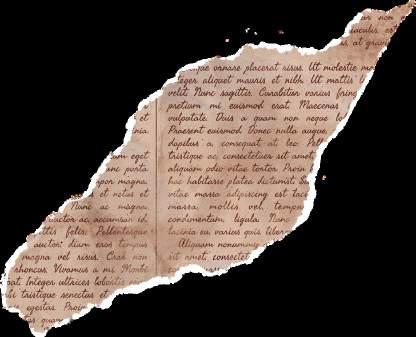
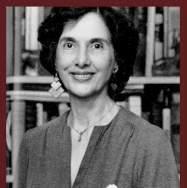

Pat Conroy was already 153 pages into his last novel, The Storms of Aquarius, when he died of pancreatic cancer in 2016. A few more pages were found on his computer. It is fitting of an author who wrote: “A story untold could be the one that kills you ” “The novel is not likely to see the light of day,” says his widow, Cassandra King. What has been published posthumously is A Lowcountry Heart: Reflections on a Writing Life, a collection of his interviews, speeches, articles, and letters, along with tributes from his friends. King wrote the book’s introduction


Flannery O’Connor famously stated, “The writer operates at a peculiar crossroads where time and place and eternity somehow meet. His problem is to find that location ” The last book O’Connor produced before her death from lupus in 1964 (and published posthumously) was her short story collection, Everything That Rises Must Converge. Her close friend and editor, Sally Fitzgerald (with help from her husband, Robert), took it from there, editing and producing Mystery & Manners in 1969, Complete Stories in 1972 (which won the National Book Award), and her letters in The Habit of Being in 1979



Raymond Andrews took his own life in 1991 in Athens. Despite his efforts to “edit his life” during his final days, he left behind several unpublished book-length manuscripts, including 99 Years and a Dark Day According
to Randy Latimer, co-executor of Ray’s estate, “At this time, there are no immediate plans to publish the additional manuscripts.” One “leftover” manuscript was a sequel to his The Last Radio Baby: A Memoir, titled Once Upon a Time in Atlanta. The Chattahoochee Review published the entire book in their Winter 1998 issue The book contains fifteen original drawings by Ray’s brother, Benny, an internationally renowned artist.
argaret Mitchell, best known for Gone with the Wind, was believed have only written one book during her lifetime She actually wrote ur In 1916, when she was 15, she wrote Lost Laysen a romance vel set in the South Pacific. She gave the two handwritten tebooks to a boyfriend named Henry Love Angel (seriously), who pt the manuscript along with several of the love letters she sent m. Angel died in 1945, and Lost Laysen remained undiscovered til Angel’s son found the manuscript in 1994 while preparing to nate her love letters to the Road to Tara Museum The lost book came a 1996 New York Times bestseller.
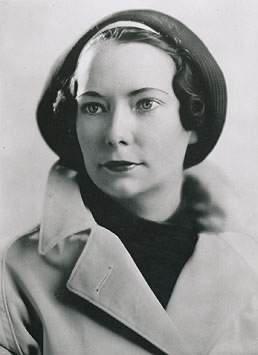


Olive Ann Burns was born in Banks County, Georgia, in 1924. Commerce, Georgia, was the inspiration for the fictional town of her bestselling book, Cold Sassy Tree, published in 1984. She began her writing life working for the Atlanta Journal-Constitution Magazine, later writing an advice column under the pen name “Amy Larkin ” Her bestseller was adapted into a 1989 TV movie However, her fans demanded she write a sequel, which she began writing, entitled Leaving Cold Sassy. Burns died of heart failure in 1990 before finishing the manuscript, and the uncompleted novel was published in 1992 along with her notes. Some authors will do anything to keep their fans happy!
Literary leftovers pose an interesting dilemma. Do we care about the author’s final wishes, or do the desires of the public take priority? Emily Dickinson told her sister, Lavinia, to destroy all her work after she died of kidney disease But Lavinia didn’t, and future readers were the beneficiaries. Does it represent the author’s intent?
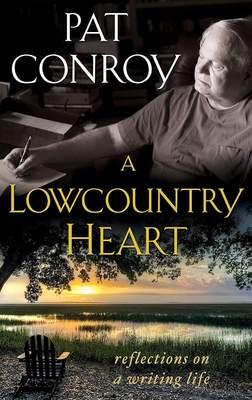
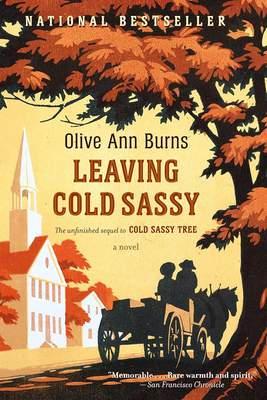
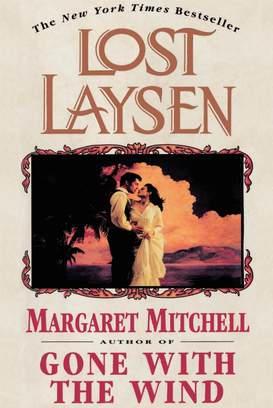
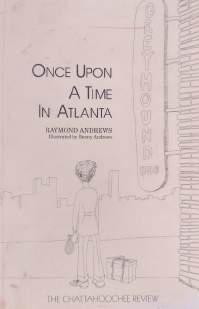

Hemingway’s The Garden of Eden was published with only 247 pages of his original 1500page manuscript because the publisher’s editors elected to perform literary surgery rather than routine edits.
“The writer always steals from life, and from everyone around them—everything is copy,” wrote literary critic Alex Belth in the March 2024 issue of Esquire. “It seems only fair that life sometimes steals from the writer too Especially when they’re no longer around to complain.”

byBrentMero
Many popular restaurant dishes started as ways for chefs to use up leftovers or food scraps. Crostinis, croutons, and French toast were developed as ways to use bread that was starting to stale. Fried rice requires leftover rice, and if you try to make it with fresh cooked rice you end up with mush. Even the iconic Chef Salad was developed to use up food scraps from making otherdishes.
One of the most common things I make from leftovers in my own home is lettuce wraps. With some lettuce leaves and rice, nearly any protein can find a second life with nothing more than a few chops and some reheating. Vegetables can be chopped if needed and added to your protein to use them up, and for a little more flavor, you can whip up a simple and easy stir fry saucefromingredientsyouprobablyalreadyhavein yourcupboard!
Thisrecipe itselfis a “leftover,” as it comes originally from a college friend I lost contact with. It is a versatile recipe that can be modified to your personal taste in many ways. The amount and type of vinegar can be changed. You can use brown sugar, regular sugar, or honey (I highly recommend trying the honey). Water will reduce the overall salty flavor of the soy sauce, but chicken, seafood, or beef broth can be used to match your leftover meats, or vegetable broth for a vegetarian meal. For a Hoisin sauce, try adding 1/3 cup of peanut butter. Leftovers are a perfectwaytoexperimentwiththeflavorofthisrecipe!
Ingredients:
1cupbrownsugar
1cuphotwaterorbroth
1cupsoysauce
1–2tbsps.redwinevinegar
1) Pour hot water or broth over the brown sugartodissolve
2) Add soy sauce and vinegar,andstir
3) Adjust ingredients to taste.Enjoy!




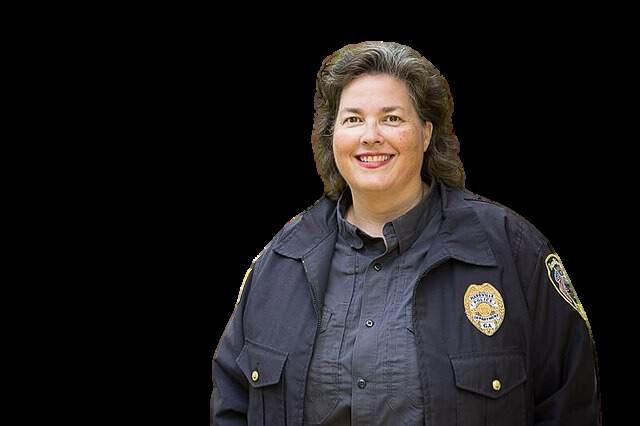
byMichaelLucker

Why? That’s right. Why do you wanna do that? Surely, there’s easier ways to make a living. You wanna be rich? Wanna be famous?
Wanna quit your job? Believe it or not, there’s easierwaystodoallthattoo.
Do you love writing? Love movies? Love television? NOW we’re getting somewhere. Those are the reasons to write. And because you love the tap-tap-tapping of the keys at the brink of dawn, in the dead of the night, or at lunch breaks at the Panda Express. Because, sadly, once you start writing movies and television professionally, you barelyhavetimetowatchthemanymore.
Like anything worth pursuing, you got to love doingittosucceed.Notjusttheoutcome.
The good news is... if you do love it, there’s moreopportunitynowthanever
Hundreds of networks, thousands of channels, millionsofviewers,billionsof dollars.
Just find your niche. That’s the trick to breakingin.Thesecretnoonetells you.
Wanna build Camaros? Become the best Camaro builder you can. Wanna build Ferraris? Build those. Hyundais? Great. But if you try and build them all, you’ll never excel at any. So too isthistrueofwriting.
Wanna write action movies? Excellent. Pour your heart and soul into that. Romance stories? Learn how those work. Horror shows? Be my guest. Go and write the goriest bloodiest series you can. Build the skill, the reputation,andrelationshipstosucceed.
Once you do... get it out in the world. The greatest work never read is not worth the paper it’s printed on. But the good stuff... that could be worth its weight in gold. And you’ll never know unless you get it to agents and producers and networks and studios to considerit.
The best news is... just as there is a method to the madness of writing screenplays, there is alsoamethodtosellingthem.Butthat’sacraft all unto itself. Your job is simply to find someone who loves doing that as much as you love to write. And try not to do them both. See whatImean?

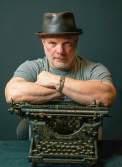
Michael Lucker is a professional screenwriter and professor with thirty years’ experience He has written for Paramount, Disney, DreamWorks, and more, and served as executive producer at Turner Entertainment. He is senior lecturer at the University of North Georgia, a mentor in Reinhardt University’s Creative Writing MFA program, and founder of Screenwriter School


The Classic Literature Book Club began September 2024as a literary community for members who love classic literary fiction, or who want to gain an appreciation of it. They meet monthly at the Euclid Avenue Yacht Club in Atlanta. Despite its academicsoundingclubname,itispopulated
with friendly people eager for a fun, lively discussion. Members share a yearning for something quite intellectual and longlasting in this age of social media. Outreach is done through A Cappella Books. Page Turner got a chance to talk with club organizer, Akihiro Nakamura.
What do your club meetings have in common?
We all say what we think was most interesting about what we find in these classic texts. What is most distinct is when members make observations and have discussions on ways the text is still relevant to today’s situations, be that the tumultuous history of the South in Faulkner’s novels or the very chaotic state of politics and civil life in Joseph Conrad’s Secret Agent. It looks like we aren’t that much different from people 100 or even 200 years ago, actually.
We’ve been mostly discussing books from the 20 century that deal with the problem of modernity, like books such as The Castle, by Franz Kafka, or Faulkner’s Absalom, Absalom! As for a favorite, Poor White, by Sherwood Anderson, had a good reception. I try to gauge members’ tastes and interests on certain novels to strike a balance between being a fun read and somethingthatmakesusthinkcritically.
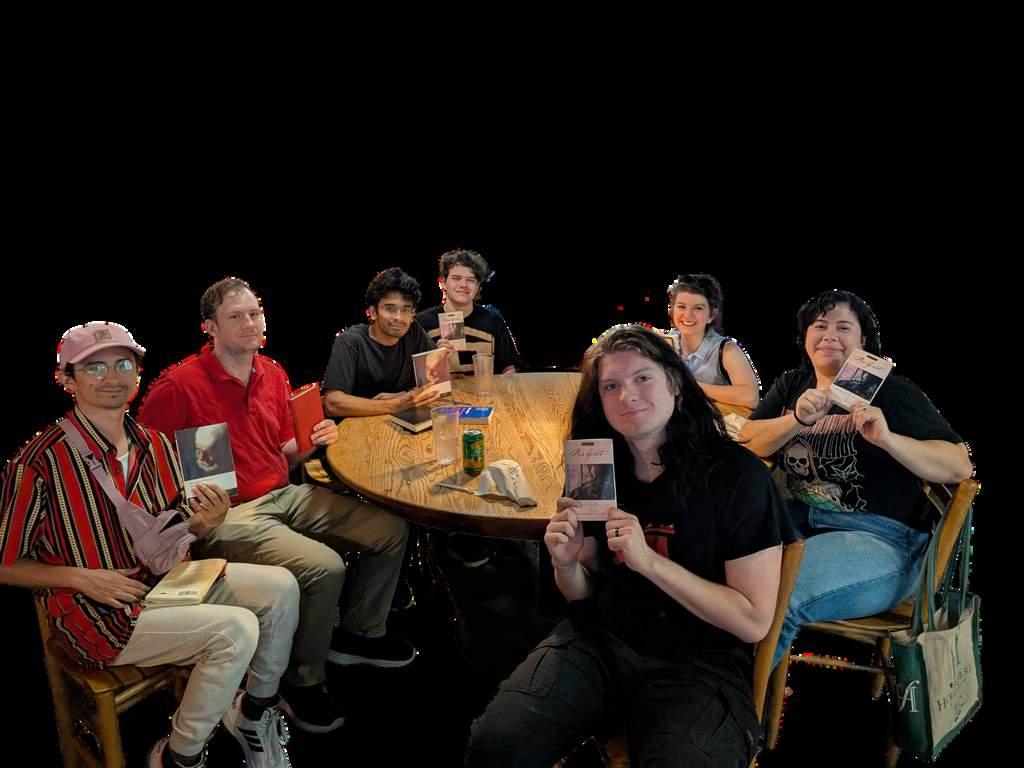
What do book club members have in common?
I think a lot of us just like engaging with good art in general. I found that many people are also interested in film. Which makes sense, given that film can be tied to narrativesmuchlikenovels are.

Something about the 1960 presidential campaign debates between John F. Kennedy and Richard Nixon bothered Daniel Boorstin.
Born in Atlanta, the historian was a professor at the University of Chicago and well on his way to a distinguished academic career when the landmark debates were televised. Now remembered as a victory for Kennedy—mainly because he looked better than Nixon—the political face-off prompted Boorstin to deeply consider the rise of celebrity in Americanlife.
In his 1962 book, The Image: A Guide to Pseudo-Events in America, he captured the rising culture and predicted the coming mindset that would bloom with social media, realityTV,andfakenews.
“In this book I describe the world of our making,” he began, “how we have used our wealth, our literacy, our technology, and our progress, to create the thicket of unreality which stands between us and the facts of life. I recount historical forces which have given us this unprecedented opportunity to deceive ourselves and to befog ourexperience.”
by JimAuchmutey
More than 60 years later, his critique of “the thicket of unreality” seems more prescient than ever.
Boorstin is a 2023 inductee into the Georgia Writers Hall of Fame, but in truth, he barely lived here. He was born in 1914 to Russian Jewish immigrants, Samuel and Dora Boorstin. His father was a lawyer who helped defend Leo Frank, a Jewish
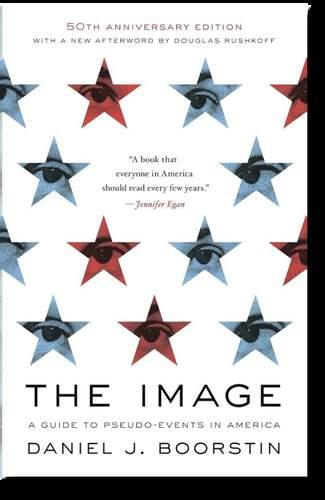
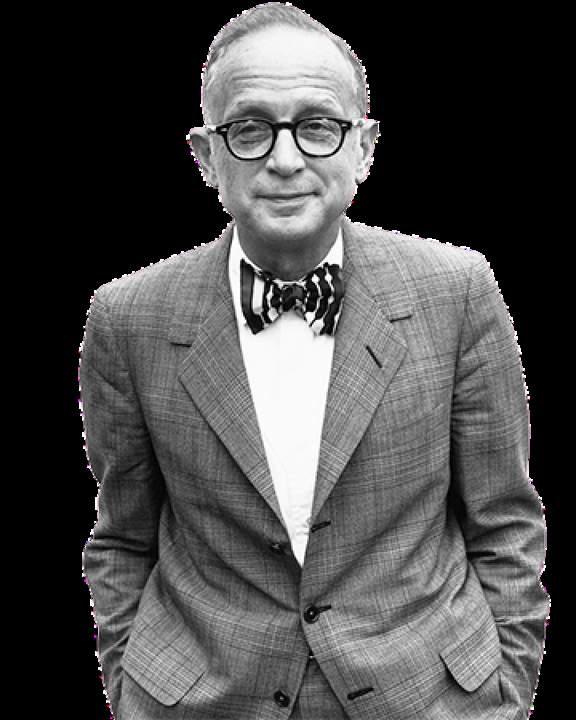
Jewish factory superintendent convicted of murdering one of his teenaged employees, Mary Phagan. After a vigilante party kidnapped Frank from prison and lynched him in 1915, the Boorstins moved to Oklahoma in part to escape anti-Semitism in Georgia
Boorstin was an intellectual prodigy He attended Harvard at 15; studied abroad at Oxford on a Rhodes Scholarship, graduating with two law degrees; and then earned a doctorate in law at Yale.
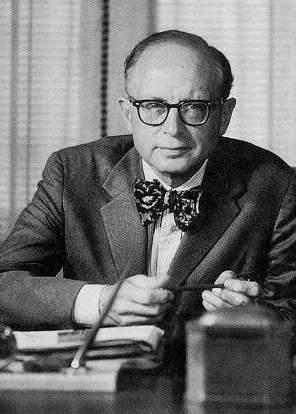

Jim Auchmutey is a former writer and editor for The Atlanta JournalConstitution, specializing in stories about the South and its history and culture.
During his student years in the ’30s, Boorstin briefly became a member of the Communist party, but he later disowned that affiliation, and became more conservative as he grew older. By the late 1960s, some students boycotted the bow-tied professor’s classes because of his tart comments about anti-war protestors.
Boorstin taught for 25 years at the University of Chicago, and then in 1969 joined the Smithsonian Institution as director of what is now the National Museum of American History He became Librarian of Congress in 1975 and served a dozen years, opening the stodgy institution to the public and founding the Center for the Book to promote literacy.
Boorstin wrote more than 20 books. In addition to The Image, he’s best known for his trilogy, The Americans, which described the way the frontier experience forged a national character of self-reliance and pragmatism. The last volume won the Pulitzer Prize in 1974.
He went on to write a second trilogy about the history of intellectual achievement, with installments in 1983 (The Discoverers), 1992 (The Creators), and 1998 (The Seekers)
Boorstin died in 2004, just as social media was being born. Decades before, he had written about “the new kind of synthetic novelty which has flooded our experience.” He was talking about press conferences and image molding, but his ideas apply just as aptly to the world we know today.★

TO W N S E N D T O W N S E N D

Every other year a panel of judges awards the Townsend Prize for Fiction to an outstanding novel or short story collection published by a Georgia writer during the past two years. The award is named for Jim Townsend, the founding editor of Atlanta magazine, the associate editor of Atlanta Weekly Magazine (of the Atlanta Journal-Constitution), and an early mentor to such Atlanta writers as Pat Conroy, Terry Kay, William Diehl, and Anne Rivers Siddons.
P A S T T O W N S E N D W I N N E R S P A S T T O W N S E N D W I N N E

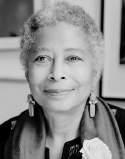
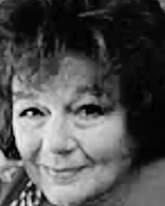
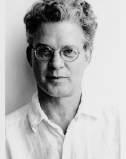
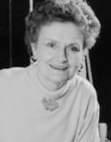
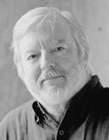


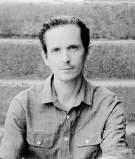
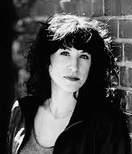
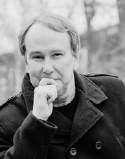

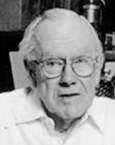
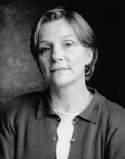

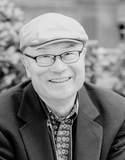


Celestine Sibley, Children, My Children
Alice Walker, The Color Purple
Philip Lee Williams, The Heart of a Distant Forest
Mary Hood, And Venus Is Blue
Sara Flanigan, Alice
Charlie Smith, The Lives of the Dead
Ferrol Sams, When All the World Was Young
Pam Durban, The Laughing Place
JoAllen Bradham, Some Personal Papers
Judson Mitcham, The Sweet Everlasting
James Kilgo, Daughter of My People
Ha Jin, The Bridegroom
Terry Kay, The Valley of Light
Judson Mitcham, Sabbath Creek
Renee Dodd, A Cabinet of Wonders
Kathryn Stockett, The Help

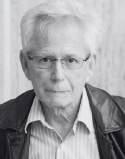



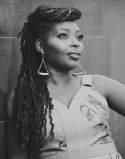
Thomas Mullen, The Many Deaths of the Firefly Brothers
Anthony Winkler, God Carlos
Mary Hood, A Clear View of the Southern Sky
Julia Franks, Over the Plain Houses
Xhenet Aliu, Brass
Sanjena Sathian, Gold Diggers
Denene Millner, One Blood
Judson Mitcham served as Georgia’s poet laureate from 2012 to 2019. Born in Monroe, Georgia, Mitcham was not formally trained as a writer. He studied psychology at the University of Georgia, earning a Bachelor’s, Master’s, and PhD. He taught in the psychology department at Fort Valley State University until he retired in 2004. He taught workshops in poetry and fiction at Mercer University, and was an adjunct professor of creative writing at the University of Georgia and Emory, where he has directed the Summer Writers’ Institute. In 2013, Mitcham was inducted into the Georgia Writers Hall of Fame.
His poetry has appeared in the Chattahoochee Review, Harper’s, Georgia Review, Gettysburg Review, Poetry, Southern Poetry Review, and Southern Review His first poetry collection, Somewhere in Ecclesiastes, earned him both the Devins Award and recognition as Georgia Author of the Year by the Georgia Writers Association. Mitcham’s first novel, The Sweet Everlasting, won him the 1998 Townsend Prize for Fiction and a second Georgia Author of the Year award. Sabbath Creek (2004), his second novel, won the 2006 Townsend Prize, making Mitcham one of only two writers to receive the awardtwice.
Page Turner got an opportunity to have a conversationwithMitcham.
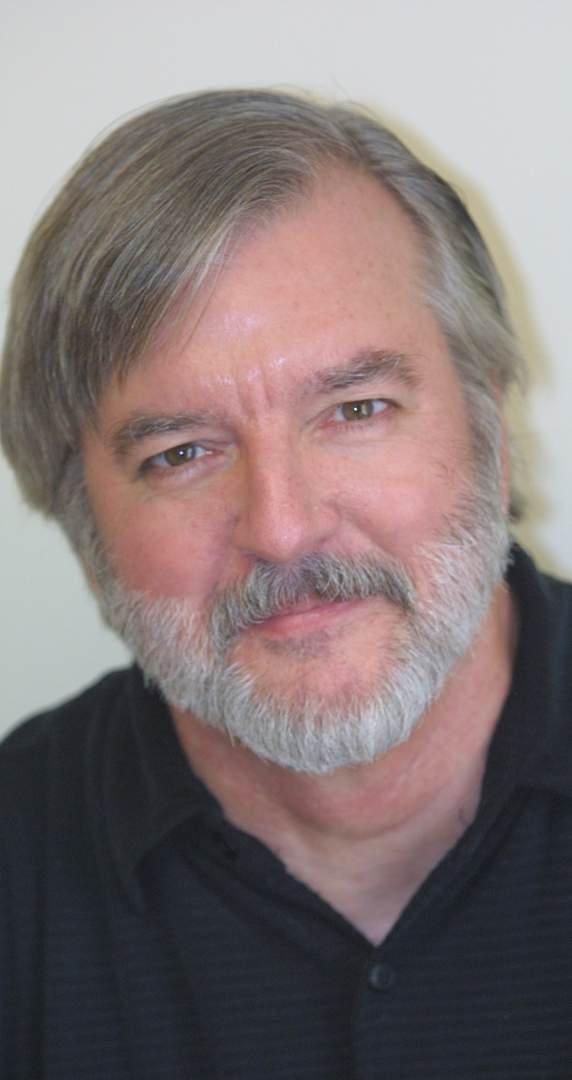

For the first 40 years of my writing life, I wrote early in the morning before going to work. I taught psychology at Fort Valley State University for 30 years. For the next 10 years, I taught writing as an adjunct professor at Mercer, Emory, and Georgia College. When our children were small, I got up around 5am to write. For the last 10 years or so, I’ve been writing from 6 to 8 every evening. I try never to miss a day. I’m a member of the Harry Crews “Put-your-ass-in-the-seatschoolofwriting.”
What is the primary source of your literary work?
I don’t know how one would identify the primary source of one’s work. It’s likely that my interest in language was helped along by my family’s deep involvement in the First Baptist Church in Monroe and our study of the King James Bible from a very early age. I study it to this day, though not in a devotional manner. It’s the language of Shakespeare. And the hymns in The Broadman Hymnal are deeply ingrained as well.
What are ways writing poetry differs from othertypesofwriting?
As far as how poetry differs from other writing in the communication of meaning, I’ve been influenced by Richard Hugo’s essays in The Triggering Town Hugo distinguishes between writing in which music must conform to truth and writing in which truth must conform to music, the latter being poetry. The journalist cannot say the barn is red just because it sounds good, while the poet may favor melody and texture. (I had a workshop with Hugo and Philip Levine—one of two times they taught together—at Callanwolde in 1981, the year before Hugo died. I showed him 12 poems. He found one good line and told me to go home andstudyit.
Whatdoyou likemost about being awriter?
My favorite part of being a writer? The writing itself, no question. It’s a far better life to be writing than to have written. For me, finishing a book, especially a novel, is like the death of an odd little world I’ve been able to create and live inside of. When it’s over, you lose friends. The business end of writing—the public aspect—is my least favorite part of writing. Stan Lindberg used to advise people to focus on being a writer,notanauthor.
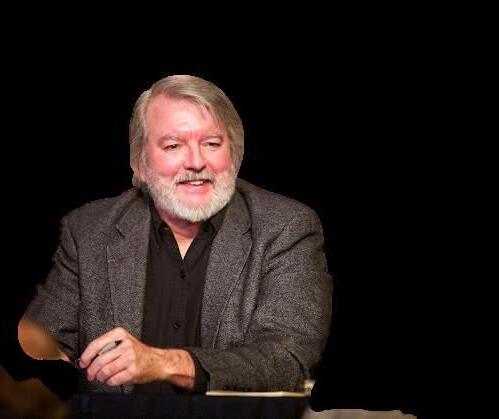
What is something people might not know aboutyou thatthey would findsurprising?
What might people be surprised to know? I did my dissertation on the nigrostriatal dopamine system, observing behavioral alterations after lesions of the substantia nigra and caudate nucleus. My PhD from UGA is in Biopsychology.
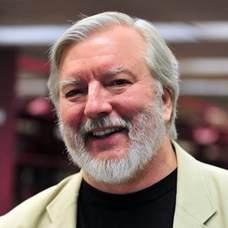
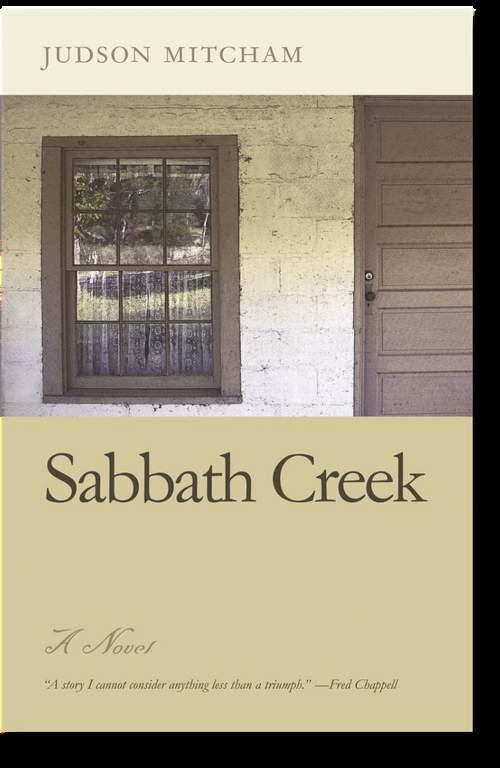

The Sabbath Creek Motor Court is the setting for a road trip through South Georgia by 14-year-old Lewis Pope and his emotionally distant mother. Prior to the journey, Lewis’ delicate interior has been traumatized by his violent, alcoholic father and his withdrawn mother At the motel, Lewis forms an unexpected bond with its gruff yet wise ninety-three-year-old owner, Truman Stroud. Through shared lessons in baseball, Stroud becomes the surrogate father that Lewis desperately needs Their intergenerational, interracial friendship is humorous and healing while transcending the South’s stereotypes of race and age. Judson Mitcham’s spare yet emotionally luminous prose renders this coming-ofage story both powerful and timeless, as Lewis learns to face his fears and begin to heal his broken heart.★
Brief as it is, Sabbath Creek has more substance and emotional impact than many novels five times its length. Rarely does one find such strength in a piece of contemporary fiction, nor as much truth about certain conditions of the spirit. It is a story that holds one intriguingly entranced. A story I cannot consider anything less than a triumph.
Fred Chappell, author of I Am One of You Forever
It is an honor to be asked to write a review for Carolyn Curry’s new novel, Trudy’s Awakening. Like me, she is a big fan of women’s history and discovering the stories of incredible women that havebeenlostintime.
Trudy’s Awakening is reminiscent of Gone with the Wind, but with characters who were real people. The physical, emotional, financial, and cultural devastation of the South during the American Civil War becomes even more real to the reader as they see it through the eyes of those who experienced it. The story also reminded me of the recent Pulitzer Prize-winning novel, James, by Percival Everett, in that it unabashedly explores the heinous practice of slavery from the point of view of people who lived throughit.
The author uses three points of view to shed light on the daily life and challenges of women of Georgia in the mid to late 19 Century. Lizzie is a struggling artist, saddled with supporting her mother, sister, and nephew after the sudden death of her father. She is consigned to painting a portrait of Ella Gertrude Clanton Thomas, who is in the midst of fighting for women’s rights—and her own demons. It is through this relationship that the author cleverly peels back the layers of both their stories.
The third point of view is of the former slave, Amanda. Although comparatively well-treated by her master, she longs for freedom to lead her own life. When that freedom comes, it brings with it a cavalcade of obstacles to overcome. The three women’s stories braid together to a satisfying conclusion.
This fast-moving and scholarly story delights, entertains, and informs. The literary world is richer for the discovery of the hidden characters of our past, who so strongly influenced our present and future.
ReviewedbyTraceyWood
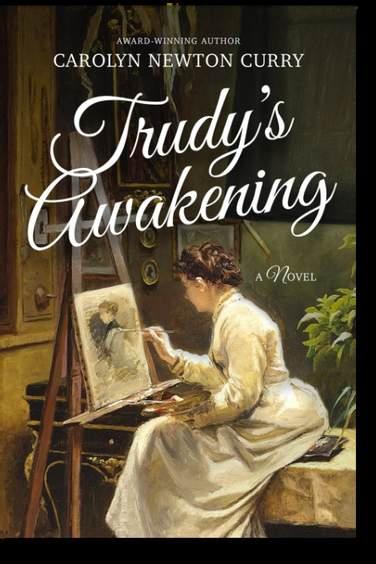
This fast-moving and scholarly story delights, entertains, and informs. This fast-moving and scholarly story delights, entertains, and informs.

Reviewed
by
Tracey Enerson Wood, International and
USA Today best-selling author of Katharine, the Wright Sister; The President’s Wife; The War Nurse; and The Engineer’s Wife Sheis a retired registered nurse and published playwright whose family is steeped in military tradition.
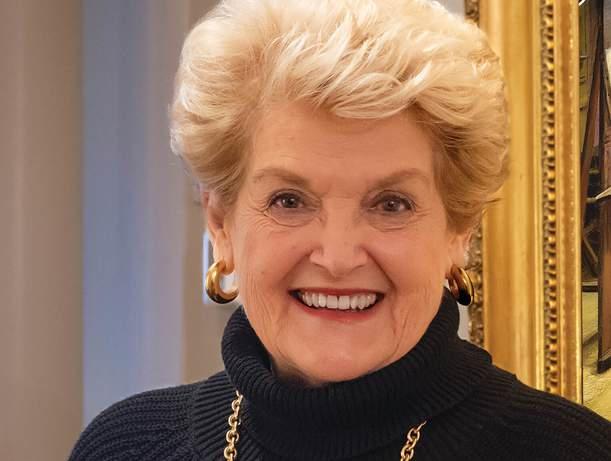
Carolyn Curry is an award-winning author, historian, and founder of the non-profit Women Alone Together®. She holds an M.A and PhD from Georgia State University. In 2014, she published Suffer and Grow Strong, selected as One of the Books all Georgians should read by the Georgia Center for the Book. In 2014, she received Georgia Author of the Year from the Georgia Writers Association.
Carolyn Curry will be at Georgia Writers Museum this October!




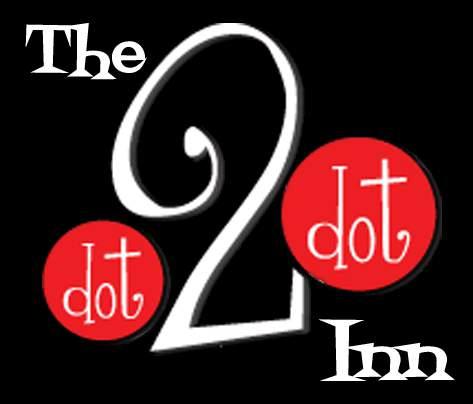

During a recent book signing, a potential customer told me she was looking for a “beach read ” Think of the stereotypical “beach read” kind of book. What do you picture? Probably it’s a cover with a beach/tropical setting in pastel colors and a title spelled out in big, friendlylooking letters If any character is depicted, it’s usually a woman in a twopiece, sunglasses, and a big, floppy hat, and maybe a beachball or big umbrella stuck in the scene just in case all the other clues weren’t enough The book is clearly made to be read at the beach or poolside and promises a carefree, breezy plot with witty, clever characters getting themselves in and out of lowstakes jams and ultimately landing a handsome, romantic beau with whom they will have a happily-ever-after life Nothing too stressful to wreck one’s vacation vibes but with enough romantic tension to put readers in the mood for love themselves.
Fortunately for authors who write historical fiction, mysteries, thrillers, and other genres not associated with beach reads, there isn’t just one type of reader. I can’t count the number of times a store customer or someone browsing at a book festival has told me they’re going on vacation but didn’t want a “typical beach read ” In many such cases, thrillers, mysteries, historical fiction, and other genres hit the spot.
by GeorgeWeinstein by GeorgeWeinstein

However, as with the individual who approached my book signing table, I’ve had to stymie enough Florida-bound customers seeking “something light” that I recognize the beach read is a real thing and exists for a reason Just as we sometimes need to escape from a stressful reality by heading to a paradise that doesn’t resemble our home in any way, so too do we sometimes need to escape from our present headspace by reading a book that promises fun, romance, long-term happiness, and other experiences that for many or most of us are ephemeral and often elusive.
Whatever your go-to genre is, whether you’re on vacation or at home, I wish you a fulfilling reading experience!

George Weinstein is the twiceformer President and current Executive Director of the historic Atlanta Writers Club (AWC), which was founded in 1914.
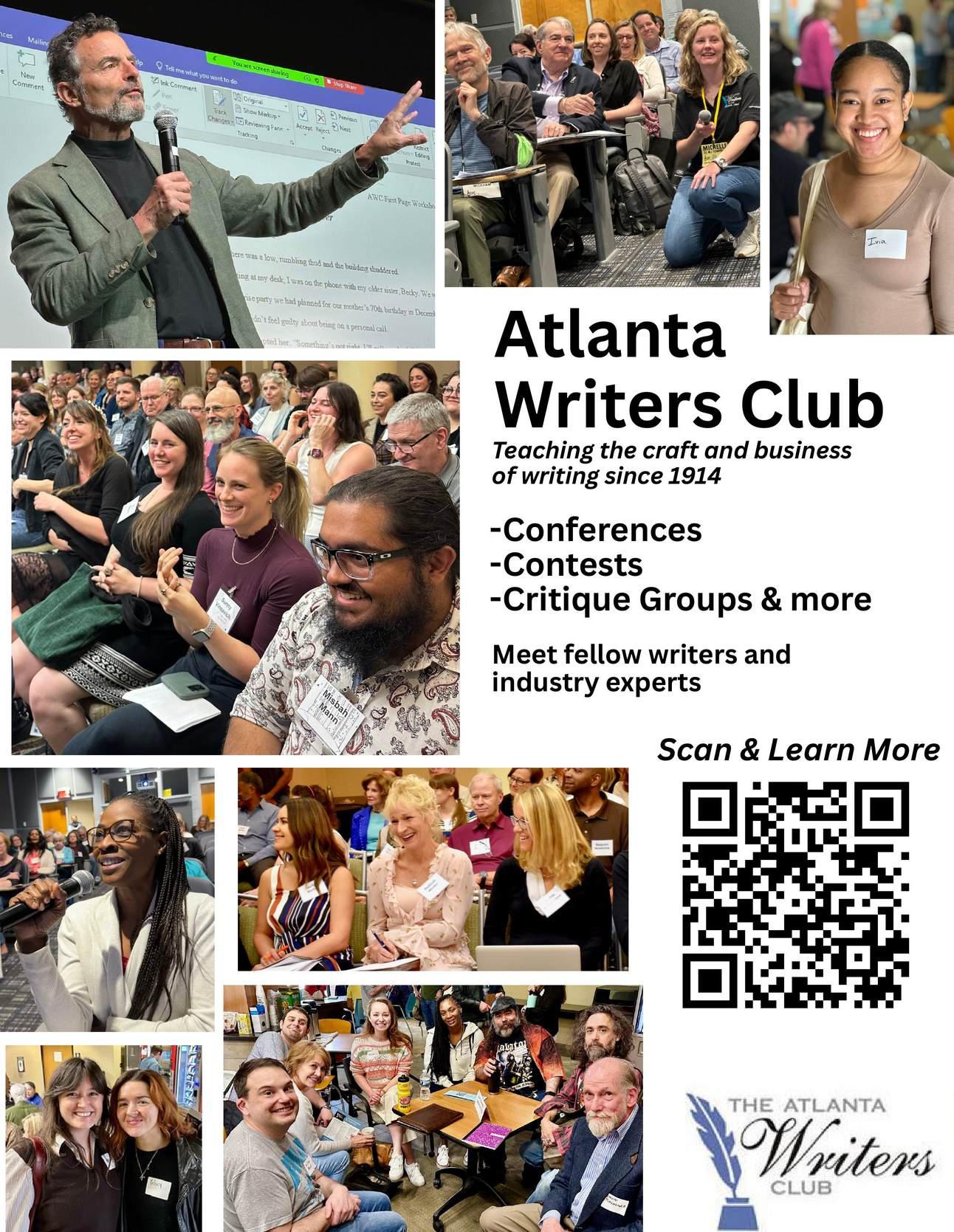
LIFE CAN ONLY BE KEPT BY GIVING IT AWAY. BUT THEN IT WILL BLOOM.
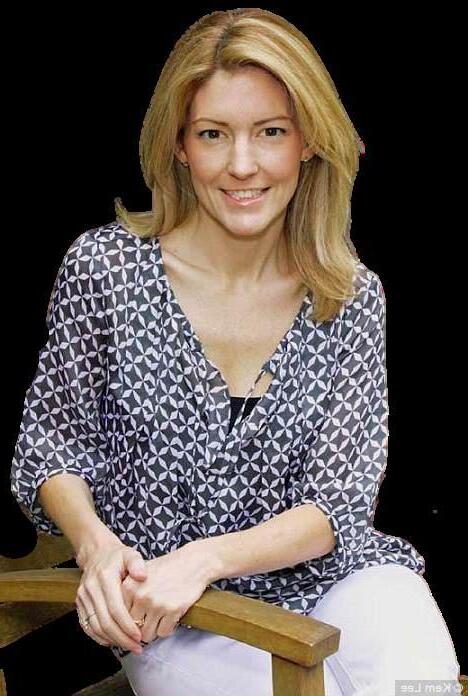
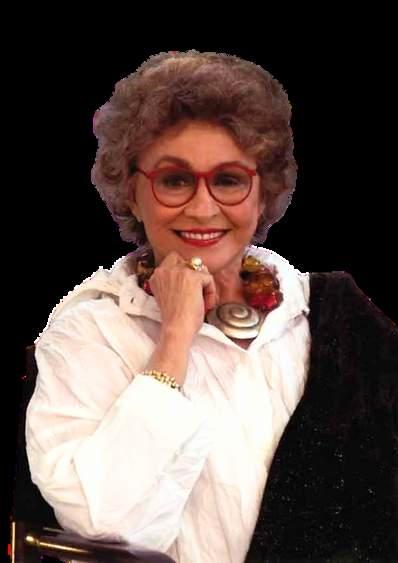
WRITE ABOUT WHAT DISTURBS YOU, PARTICULARLY IF IT BOTHERS NO ONE ELSE.
EVEN AS I THINK OF MYSELF AS A “REMEMBERER,” I ALSO KNOW MY MEMORY IS PROBABLY DOING ALL THIS WORK TO RECONSTRUCT A NARRATIVE WHERE I COME OFF BETTER.
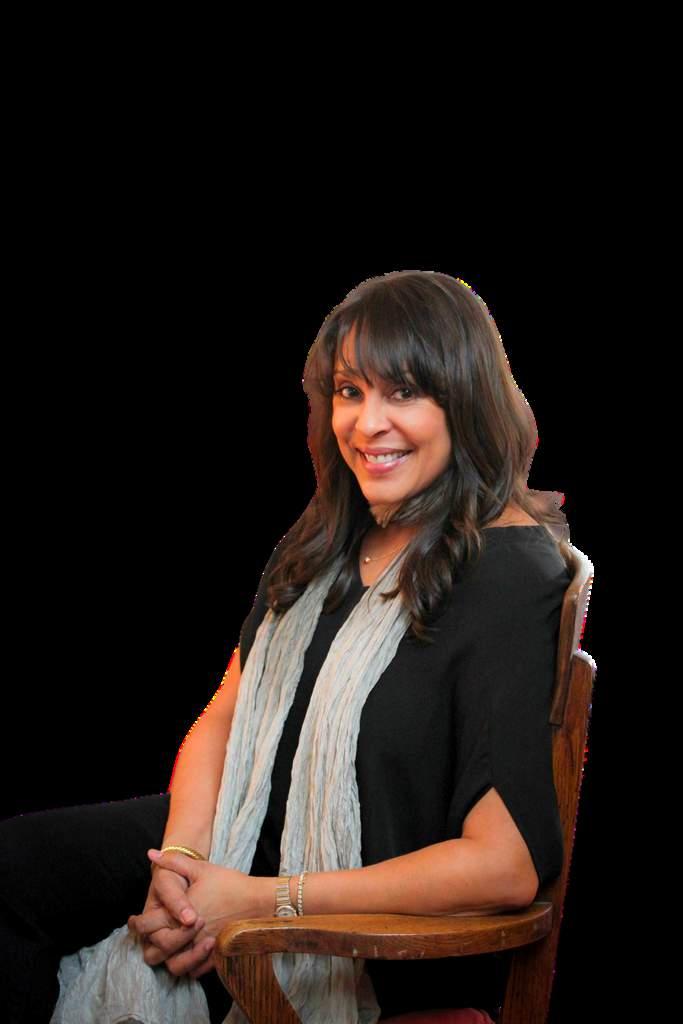
Imagine the joy of Christmas morning at age eight; you’re waiting in the hall and hoping Santa delivered your dreams. That joy is what Joy Walker bottles up daily, and she’s poured it into Finding Joy in the West After 30 years of teaching, she bought a motorhome to bike across all 50 states and write about her travels.
We caught up with Joy near the Florida Keys to ask about her first book.
Was there a particular person helpful to you in finishing yourbook?
My editor, Mari Ann Stefanelli, whom I met at the GWM Writers Retreat in 2023, worked with me on the flow. At that same retreat, I met Dr. Patti Phillips, who has become a cherished mentor. I must mention Vickie McEntire, my publisher with The Spotted Feather, an imprint of Colorful Crow Publishing. I was up against a self-imposeddeadline,andshemadeithappen.
Howlonghaveyoubeenworkingonyournew book?
My first draft was completed by Labor Day, 2022, and I aimed to have it ready for publication by December of that year. I was naïve. After 12 more drafts and the help of two editors, it was published this April. What I thought wouldtakemeayeartookmewelloverthree.

Juneau, Alaska
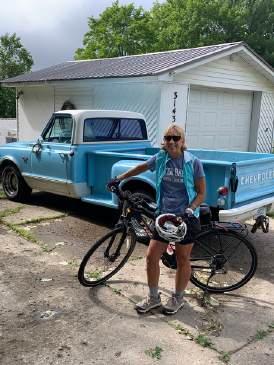

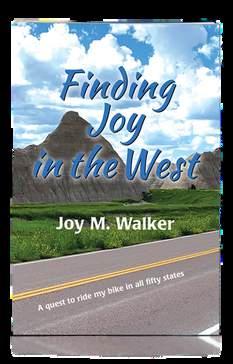
Tellusaboutyourwritingprocess.
I kept a journal as I traveled that became my first draft. When it came to linking events and writing details, I relied on pictures on my phone. My best writing, revising, and editing happened in my home office, late at night.
What advice would you give an aspiringauthor?
Start writing and keep writing. Go to writing conferences and listen to podcasts about writing and marketing. Making it to the finish line is never easy, but you will be glad you did whenyouholdyourfirst book.

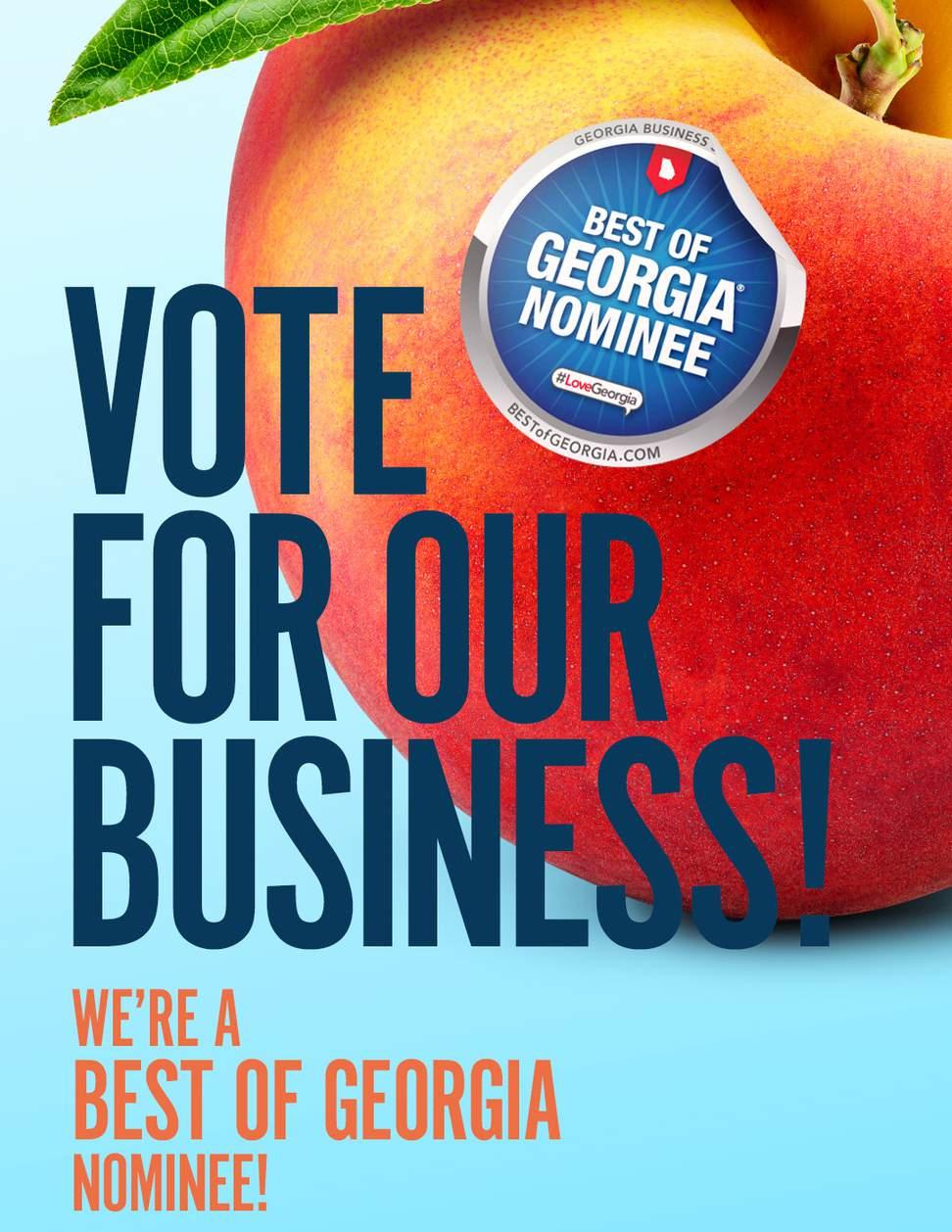
Charis is the Greek word for “grace.” It means kindness, charm, and favor. And it profoundly fits the warm, inviting spirit of Charis Books & More. A mission-driven feminist bookstore with a fifty-plus year history, it takes great pride in its welcoming atmosphere. We spoke with E.R. Anderson, executive director of Charis Circle, the nonprofit programming arm of Charis Books, abouttheirspecialplace.
WhatmakesCharisunique?
We are driven by our values and our desire to serve our community, rather than by profit or even “just” a love for books (though of course we love books!). People feel the intentionality behind our physical space, how we communicate with customers, and how we choose events to host. We know it takes decades to build trust, so we take very seriously the trust of our community. That has kept us relevant and authentically connected to the people we serve, and made us the oldest feminist bookstoreintheSouth.
What are ways you pleasantly surprise your customers?
People new to Charis are often surprised by how expansive our feminism is. We believe that feminism is about the right of all people to be self-determining across every spectrum of their lives. We have sections in our store that reflect that expansive understanding of feminism. We are genuinely welcoming to people new to feminism or who aren’t fully aligned with our ideas. We train our employees to meet people wheretheyarewithagenuinespirit.
What is a feature of your experience almost no otherareabookstoreoffers?
We are one of the few deeply intergenerational, multi-racial, multi-gendered spaces in Atlanta, and we are a place that often convenes complex conversations that no one else is having (yet). I hope people always remember Charis as a place where they can be their authentic selves, meet people different from them, and learn about ideas and concepts that could challenge them and change their lives for thebetter.




1st & 3rd Tuesdays @ 1pm
Lake Oconee Church of Christ, 4700 Carey Station Rd., Greensboro, GA 30642
Last Tuesdays @ 1pm
If you look up the word “vintage” in the really big dictionary, one of the definitions is “old.” But the fuller definition, the one with all the body, is “something of recognized and enduring interest, importance, or quality.” Those features are embedded in the history, mission, and culture of AtlantaVintageBooks.
One of the most special features of the store is its extensive selection of books in all genres and subjects. The 7,000-square-foot store houses almost 100,000 books and is situated in the vibrant, popular Brookhaven/Chamblee community of metro Atlanta. The store offers everything from everyday reading copies to First Editions, rare books, and author-signed copies. Their huge History Room is very popular as well as their Ephemera section filled with vintage magazines, newspapers, photographs and other rarepiecesofhistory.
But the bookstore has far more than new and used reading material. It extends its “recognized and enduring interest” mission to include the experience customers get when they cross the bookstorethreshold.
“Hello, let us know how we can help you with anything” is the mantra of every associate in their quest to ensure people feel comfortable and appreciated And customers are not only met with memorable warmth, but with the expertise of booksellers with over 40 years of combined experience in the business That deep knowledge not only encompasses book selection, but book appraisal as well a commentary on their unique proficiency with rare and vintage books.
The husband-and-wife team of Jan Bolgla and Bob Roarty has owned the bookstore since 2007 They added a staff of book enthusiasts committed to creating literary memories for customers. But wait, there’s more. The store is also staffed with three popular feline helpers-Big Boo, Little Boo, and Mickey And when customers check out, you are likely to hear them say, “Thank you so much for being here!” and “I am so glad this place exists!”


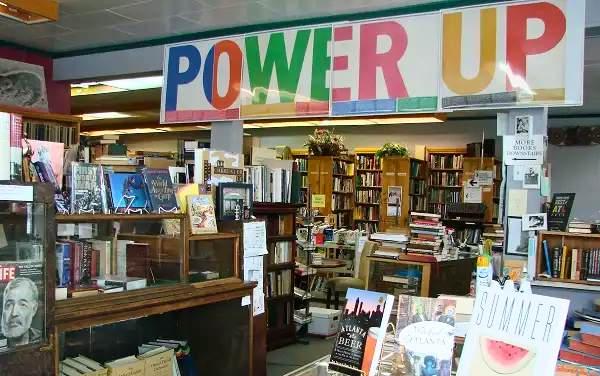


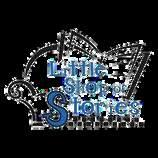

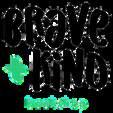




2nd

3rd
ProfiledbyEmmeClause
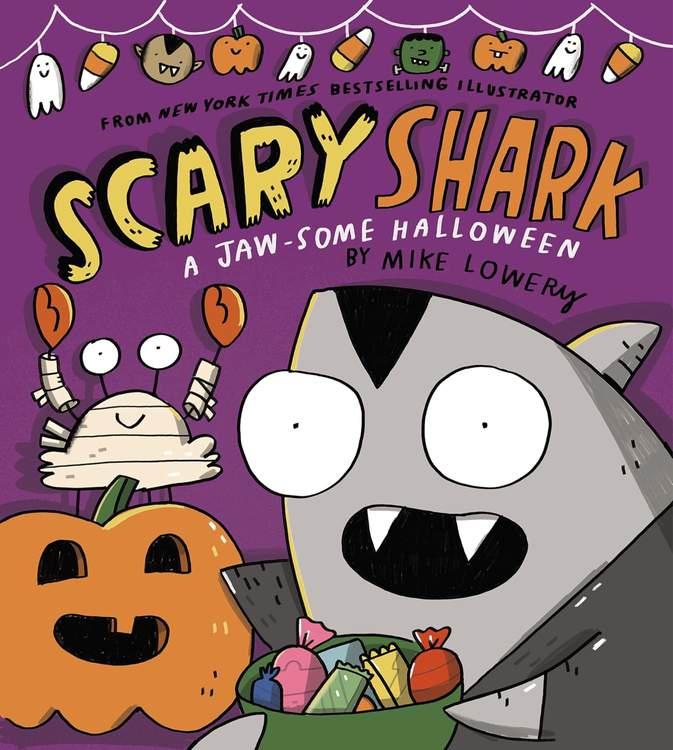
Books
July 1, 2025
32 pages For Ages 4 - 8
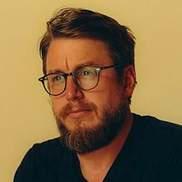

Mike Lowery is an Atlanta-based illustrator and author who has worked on over 80 books for children and adults. He's also written several books, including the "Doodle Adventures" series of graphic novels for kids and "Random Illustrated Facts: A Collection of Curious, Weird, and Totally Not Boring Things to Know" which collects his drawings of super-weird and totally true facts.
New York Times bestselling creator Mike Lowery’s Scary Shark: A Jawsome Halloween is a delightfully spooky-silly picture book. Edgar the Shark is a little scared of Halloween, but his friend Lotta wants to prove that there’s nothing to be frightened of! With playful illustrations and lots of humor, Lowery creates a story that balances just the right amount of “scary” for little readers. Kids will enjoy seeing how Edgar the Shark practices some not-so-traditional Halloween activities, like carving Jack-OLanternfish, as he learns Halloween is all about imagination and creativity! This book’s humor, wordplay, and colorful illustrations make it an ideal read-aloud book for parents during the spooky season.


ProfiledbyEmmeClause
Mayra Cuevas’ My Abuela is a Bruja is a heartwarming picture book that blends magic with family bonds. The award-winning author’s newest book has a touch of Puerto Rican magic as it describes the unbreakable bond between a grandmother and her granddaughter. A starred review from The Bulletin stated that “Cuevas’ writing carries a richness equal to the illustrations, with turns of phrase that capture the imagination that make the mundane miraculous.” Experience the magic yourself, as you read about how regular activities like cooking and dancing can be transformed into something completely whimsical! You can even recreate the magic in your own home, with two recipes included in this book! Don’t miss this joyful, uplifting story with gorgeous illustrations by Lorena Alvarez Gomez.

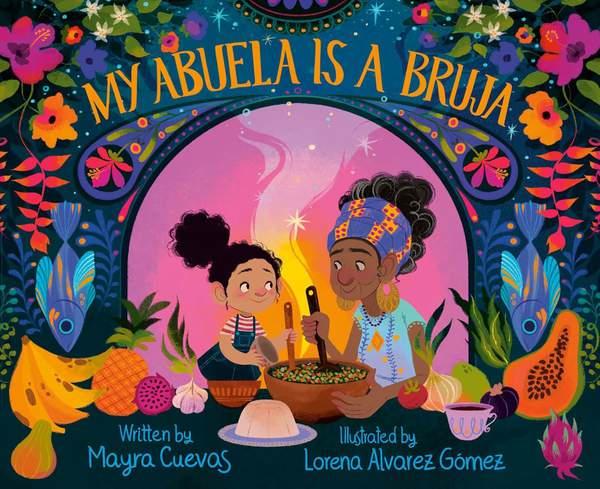
Knopf Books for Young Readers August 12, 2025
40 pages For Ages 4 - 8
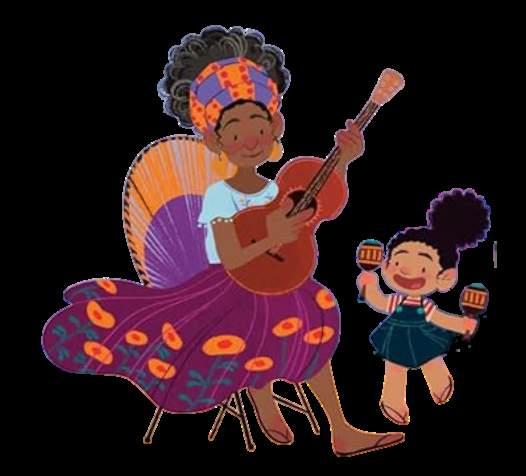
Mayra Cuevas is the award-winning author of books for readers of all ages. Her young adult novel Does My Body Offend You? (co-written with Marie Marquardt) was long-listed for the PEN/Faulkner Award, named a 2023 Book All Young Georgians Should Read and appeared in multiple “Best Books” lists. In 2023, she was named Georgia Author of the Year (YA category).

ProfiledbyEmmeClause

Award-winning author Reem Faruqi’s Zarina Divided is a novel written in verse about identity, family, and the struggle of finding your “place,” set during India’s partition. The protagonist, Zarina, loves her life in India, but when she and her family are forced to move to Pakistan because they are Muslim, she is heartbroken. How can she leave everything she knows behind, including her close friends? In Pakistan, she feels like an outcast. Zarina decides to attend a boarding school in hopes of overcoming her sadness and guilt. But will her decision be the right one to heal both herself and her familial relationships? This story, inspired by Faruqi’s grandmother’s life, is a reminder to readers that growth must come from change. It offers a new perspective on a difficult period in history, opening readers’ eyes not only to hardships, but to overcoming them.

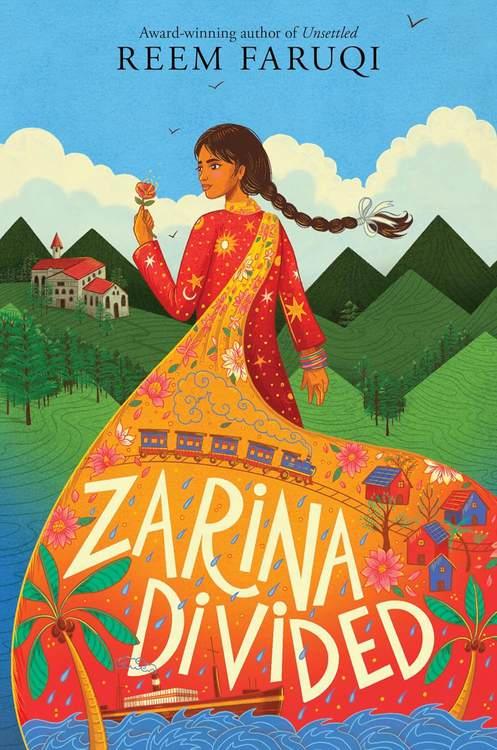

8 - 12
Reem Faruqi is an award winning author who enjoys writing lyrical stories that reflect her own experiences. Of Pakistani origin, Reem moved to Peachtree City, Georgia, from Abu Dhabi, the United Arab Emirates, when she was 13 years old. She has a masters in elementary education and loves to doodle, write, and take photos. Currently, she lives with her husband and daughters in Atlanta.

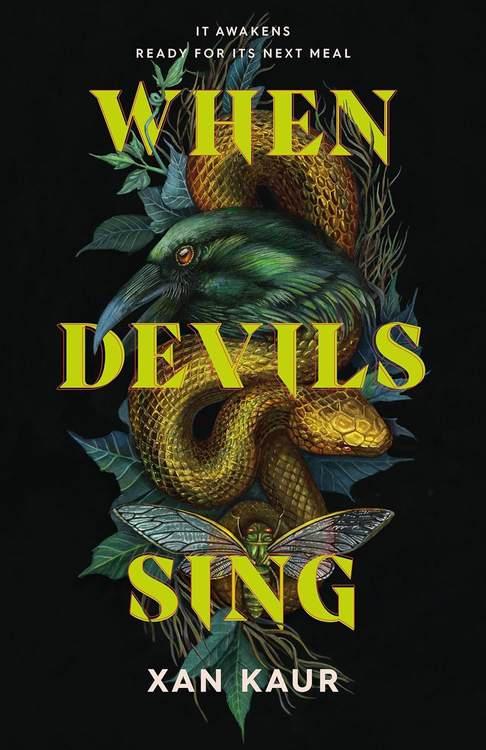
Henry Holt and Co May 27, 2025
391 pages For Ages 14 - 18
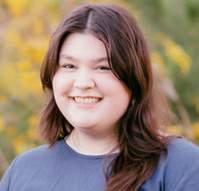
Dark and atmospheric, this debut novel from Xan Kaur is set in the rural Georgia town of Carrion. It tells the story of four unlikely allies brought together by the mysterious disappearance of local teenager Dawson Sumter. The group must put aside their differences to uncover not only the mystery of the disappearance, but also the deeper secrets of the town. Booklist reviewed this debut novel as offering “nuance to the Deep South, acknowledging the politics, religious fervor, and racial tensions often attributed to Southerners with depth and care.” What “devils” will this group discover, and how does it all connect? This chilling story is perfect for readers that enjoy eerie folklore and Southern horror.

Emme Clause is the graphic designer for Page Turner She completed a degree in Creative Writing at Georgia College & State University Now, she is pursuing her Master’s at the University of Alabama.

u t h o r


AXan Kaur is a PunjabiAmerican author who grew up in rural Georgia, where there were more gnats than people. Her debut novel is When Devils Sing, an instant New York Times and National Indie bestseller.

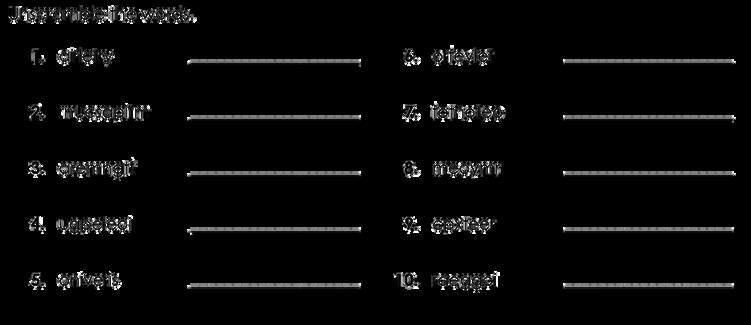

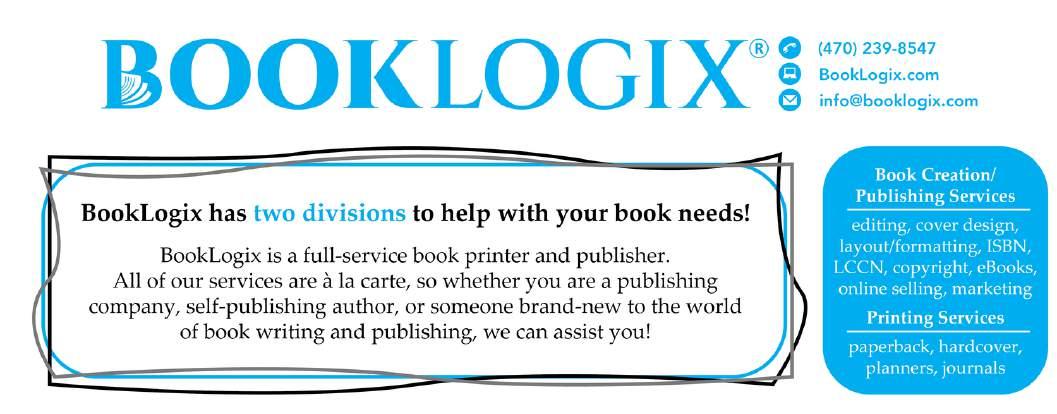

byEmmeClause

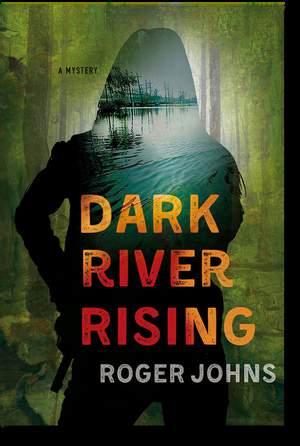
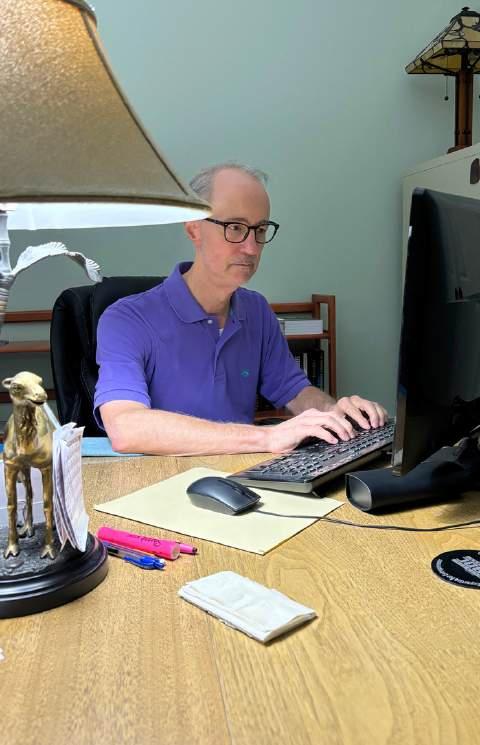

Before Roger Johns was a compelling voice in crime fiction, he grew up as an only child in central Louisiana. When his boyhood dreams of becoming an astronaut, inspired by the Space Race, never came to pass, he pursued a different path, earning law degrees from Louisiana State University and Boston University. After a few years as a practicing attorney, he began a nearly two-decade-long career as a college professor, after which he decided it was time to retire. Only, his retirement was shortlived.
“I resurrected this idea I had for a book that I’d been thinking about for years. That was the start of it.Idid itbecauseIflunkedretirement,” heshared.
The concept behind his debut novel, Dark River Rising (2017), came from a “What if” question about international criminal enterprises that Roger had learned about during his time as an academic. This novel, along with its sequel, River of Secrets (2018), follows Detective Wallace Hartman, a determined female investigator navigating crime in Baton Rouge,Louisiana.
His debut novel earned him the 2018 Georgia Author of the Year Award in the Detective/Mystery category. He was also a finalist for the Killer NashvilleSilverFalchionAward(2018and 2019), a Killer Nashville Readers’ Choice nominee, runner-up for the 2019 Frank Yerby Fiction Award, and was named the 2019 JKS Communications Author-inResidence.
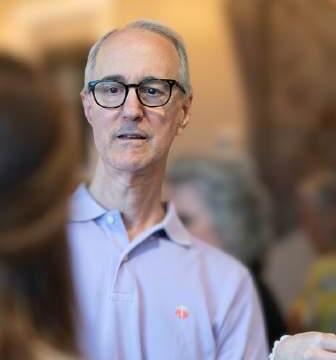
Beyond novels, Roger’s short fiction has been published by, among others, Saturday Evening Post, Alfred Hitchcock’s Mystery Magazine, Mystery Weekly Magazine, and DarkCityCrime&MysteryMagazine.
An active presence in the writing community, Roger is a member of the Mystery Writers of America, International Thriller Writers, and the Atlanta Writers Club. From 2020 to 2022, Roger served as Vice President of the Mystery Writers of America’s Southeast Chapter, and he has been an avid member of the Atlanta Writers Club, which he joined in 2012.
“The Atlanta Writers Club saved me,” he said. “There were a lot of well-published writers in the critique group I was able to join, and they were very honest about what worked and what didn’t. Their advice and guidance helpedmegetmywritingintoshape.”

Emme Clause is the graphic designer for Page Turner She completed a degree in Creative Writing at Georgia College & State University. Now, she is pursuing her Master’s at the University of Alabama
Roger has made over 140 live appearances, including conferences, book festivals, libraries, and podcasts, sharing insights on mystery writing and navigating a writing career.
When faced with writer’s block, Roger takes a different approach to his writing. He doesn’t limit himself to writing in sequence, but reverse-engineers his stories by thinking backwards. With no stones left unturned and no plot holesleftwaitingto be filled,hiswork really shines. He also emphasizes authenticity in his characters, diving deep to get inside their minds so they come alive to hisreaders.
Roger Johns lives in Georgia, where he continues to do his very favorite things— writeandread.★

October, November, December
Atlanta Writers Club Locations vary, please check the website.
October 18
In-person at GSU-Dunwoody
October 24-25
Atlanta Writers Conference at Westin Atlanta Airport Hotel
November 8
Marketing Workshop – Develop Your Marketing Plan: Even if You’re Still Working on Your First Book – at GSU-Dunwoody
November 15
In-person at GSU-Dunwoody
December 9
Quarterly Online Workshop
December 20
In-person at GSU-Dunwoody

Georgia Writers Museum
109 S. Jefferson Ave. Eatonton, GA 31024
October 7
Carolyn Curry Trudy's Awakening
October 13
Spooky Story Contest Closes
October 16
Flannery O'Connor Book Club @ 2pm at GWM
Distinguished Writers Book Club @ 7pm on Zoom
October 18
Crime & Wine
October 24, 25, 30 and November 1
Haunted Eatonton Ghost Tours
October 30
Spooky Story Contest Winners Announced
November 4
Anne Byrne
Baking in the American South
November 15
Crime & Wine
November 20
Flannery O'Connor Book Club

Andalusia 2628 N Columbia St
Milledgeville, GA 31061 (478) 445-8722
BookLogix
1264 Old Alpharetta Rd Alpharetta, GA 30005 (470) 239-8547 booklogix.com
Brave + Kind Bookshop
722 W College Ave Decatur, GA 30030 (470) 440-5714 braveandkindbooks com
Cold Case Investigative Research Institute coldcasefoundation org
Greensboro Writers Guild Lake Oconee Church of Christ 4700 Carey Station Rd. Greensboro GA 30642
Little Shop of Stories
133 E Court Square #A Decatur, GA 30030 (404) 373-6300 littleshopofstories.com

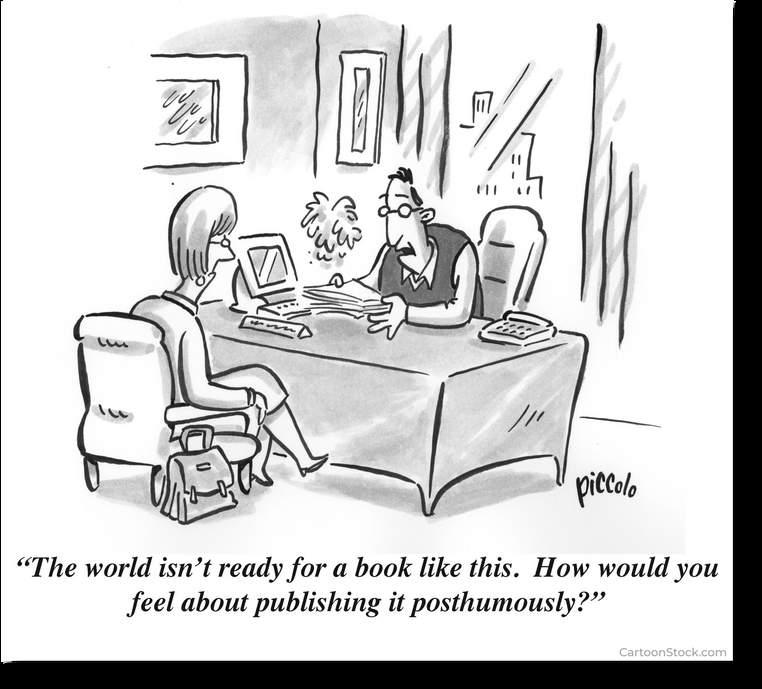
Magic Time Literary Publicity magictimeliterary com
The Atlanta Writers Club atlantawritersclub.org
The Artisans Village 110 W Marion St Eatonton, GA 31024 (706) 623-7757 theartisansvillage org
The Plaza Arts Center 305 N Madison Ave Eatonton, GA 31024 (706) 923-1655 plazacenter org
The Story Shop 124 N. Broad St. Monroe, GA 30655 (678) 635-8801 visitthestoryshop com
The Writer’s High thewritershigh.com
Print & Sign Solutions
612 Old Phoenix Rd NE Suite B Eatonton, GA 31024 (762) 220-1110 printsignsolutions.com
Smith Communications
100 N Jefferson Ave Eatonton, GA 31024 (706) 485-3501
Southern Indie Booksellers Alliance 51 Pleasant Ridge Drive Asheville, NC 28805 sibaweb com
Sylvia's Coffee
111 S Jefferson Ave. Eatonton, GA 31024
Visit Eatonton
108 W Marion Street Eatonton, GA 31024 (706) 485-7701 visiteatonton.com


Thursday-Saturday & Monday 7:30AM - 2PM

